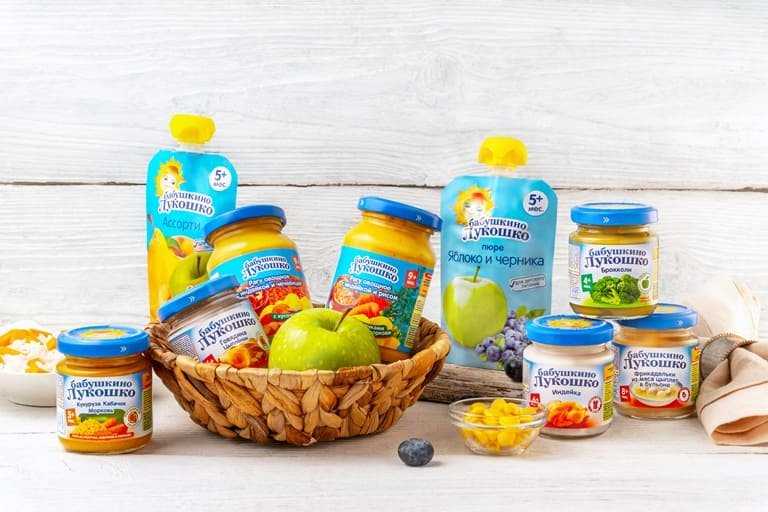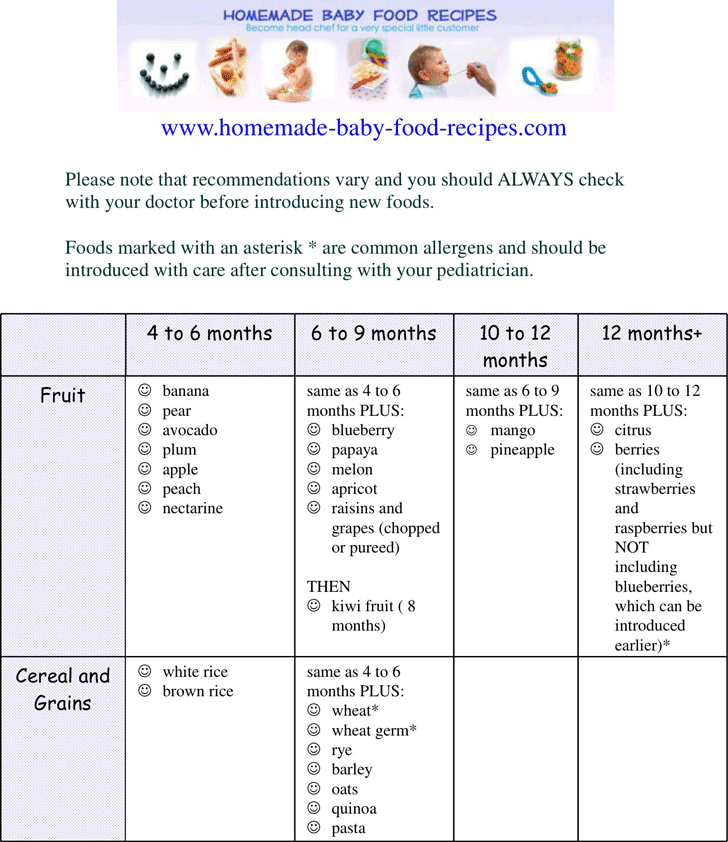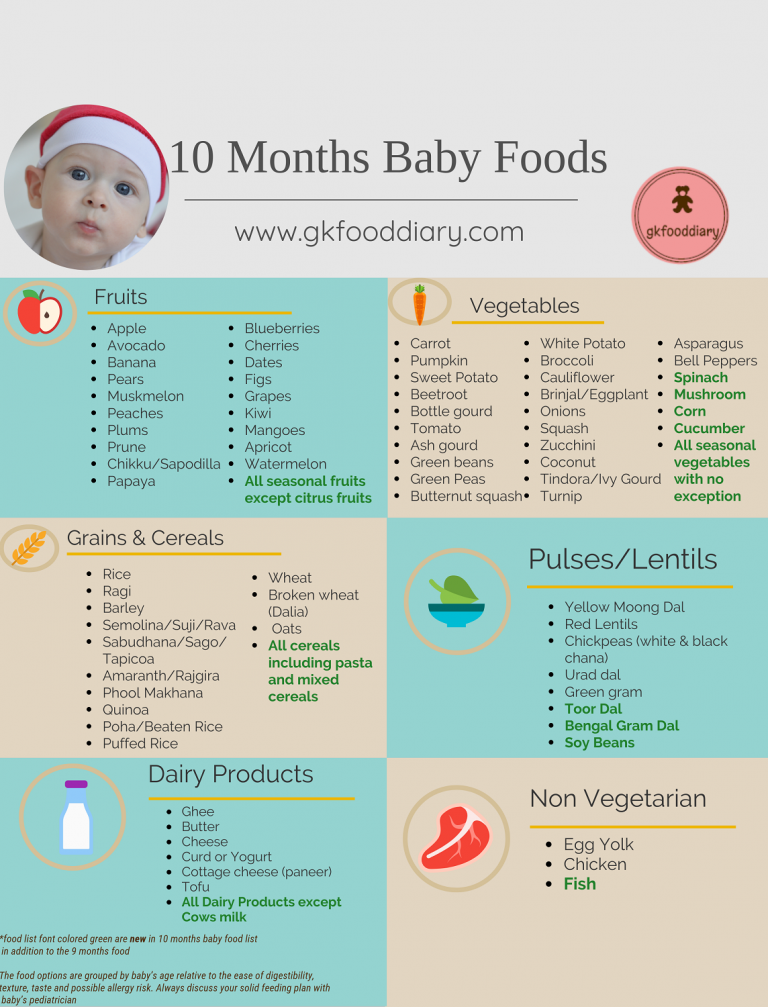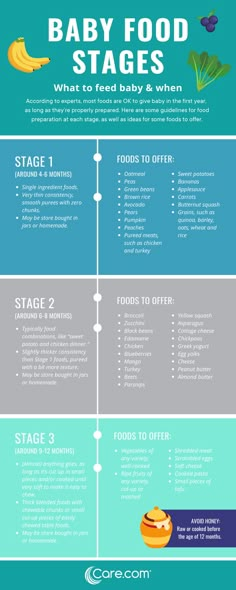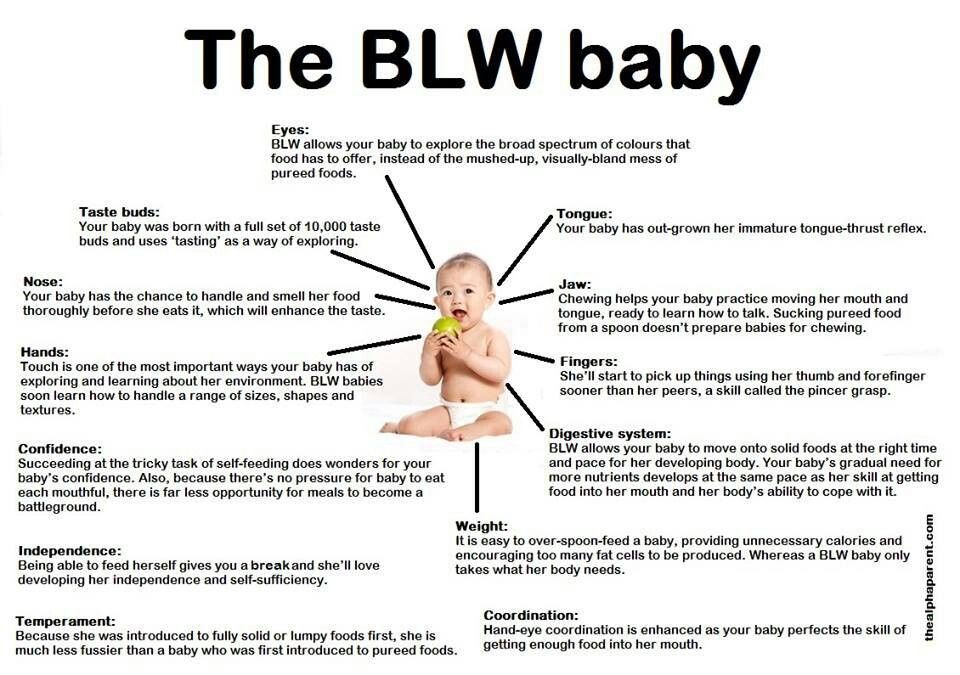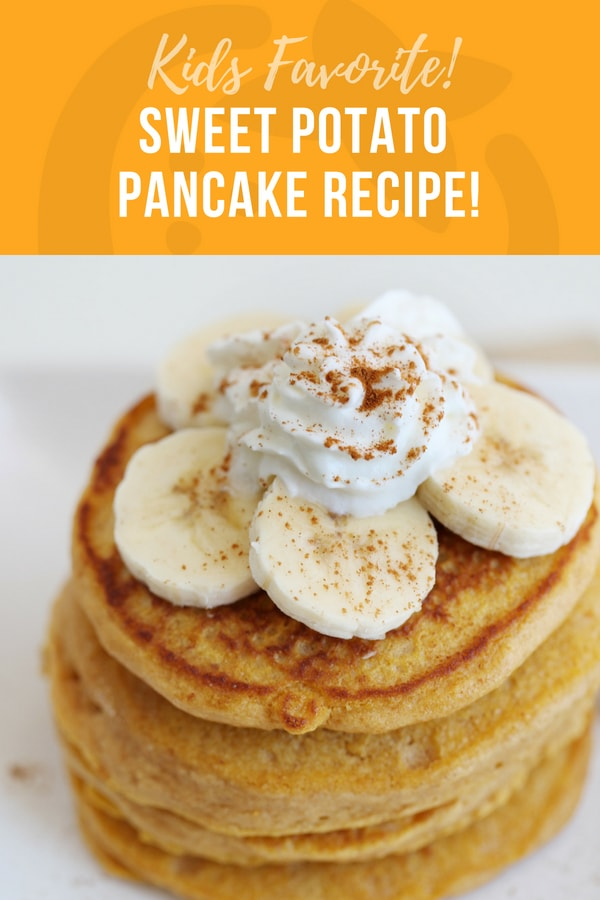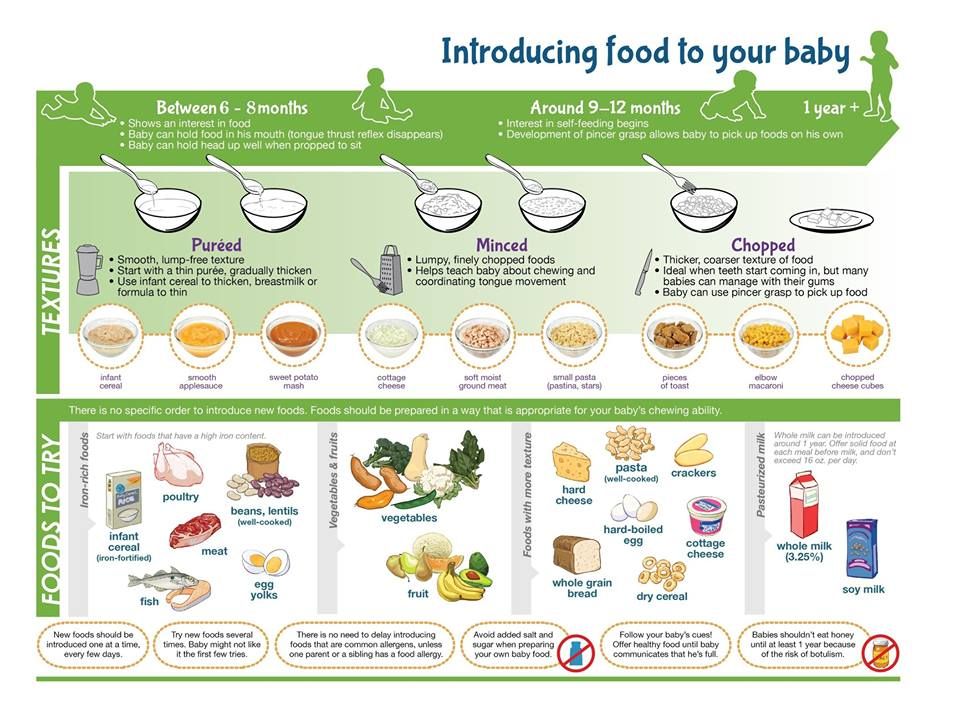Suitable baby food
Jars, Pouches, Organic, and More
Share on PinterestWe include products we think are useful for our readers. If you buy through links on this page, we may earn a small commission. Here’s our process.
After months of breastfeeding or bottle-feeding, it can be surprising to realize that your still-tiny baby is actually ready for “real” food. This exciting (albeit messy!) transition may be a little bittersweet and can feel overwhelming, especially considering the numerous baby food options available in 2022.
We’ve rounded up some of this year’s best baby foods to help you get started on the right foot — er, spoon.
Both the World Health Organization and the American Academy of Pediatrics (AAP) recommend exclusively breastfeeding babies for the first 6 months of life. Formula-fed infants are ready to start solid foods when they start showing signs that they’re ready.
In some cases, you may start solids around 4 or 5 months, but it’s best to discuss this with your pediatrician. If your doctor doesn’t have a different recommendation, most babies are ready to start soft or pureed foods by the time they’re about 6 months old.
If you’re picking commercially prepared baby food (versus making your own), it’s wise to start with simple, one-ingredient baby food. Most commercial baby food is labeled stage 1, 2, or 3 based on the texture and number of ingredients.
For instance, stage 1 baby food has the smoothest texture and typically has one ingredient, such as pureed pears. So, for your 4- to 6-month-old, you’ll want to start with stage 1 baby food.
Starting with one food at a time helps you monitor for any adverse reactions or food allergies. The American Academy of Allergy, Asthma & Immunology recommends monitoring each food for 3 to 5 days.
There isn’t really a perfect first food — the choice is yours! Some good foods to start: infant cereal (preferably oat or whole grain), meat purees such as chicken or turkey, or single-ingredient purees of fruits or veggies.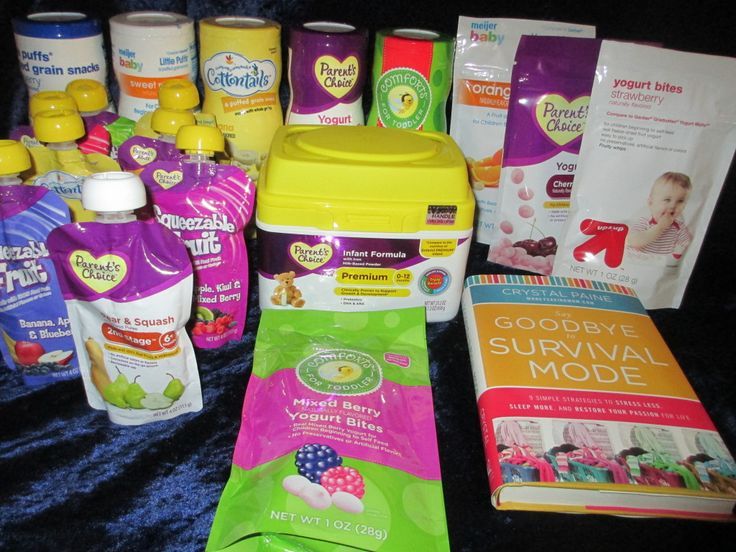
If you’re debating whether to start with fruits or veggies first, the AAP suggests that an infant’s preferences for sweets won’t budge even if veggies are introduced first. Mashed peas just don’t taste as good once you’ve had applesauce.
We chatted with pediatricians, read the research, polled real-life parents, read reviews, and used our own babies as taste testers (although we can’t say their opinions on nutritional value are very authoritative) to bring you some of the top baby food brands available. In addition:
- We looked for foods that are certified USDA organic and have non-GMO verified ingredients.
- We focused on baby food that’s free of added sugar (but have called out one or two products that contain it).
- The baby foods on our list are free of harmful preservatives.
- We called out the brands that market their products as gluten-free and allergen-free.
All products are also vetted by our medical standards team, which evaluates brand integrity and product safety.
Reducing Exposure to Toxic Elements in Baby Foods
Three brands in this article — Gerber, Beech-Nut, and Happy Baby — were mentioned in a February 2021 Congressional Report for products containing significantly high levels of toxic heavy metals, including arsenic, lead, cadmium, and mercury. The FDA has since launched the Closer to Zero: Action Plan for Baby Foods to address exposure to toxic elements from eating baby foods.
- Best overall baby food: Beech-Nut Naturals Stage 1
- Best organic baby food pouches: Plum Organics Stage 1
- Best budget-friendly baby food: Gerber Organic 1st Foods
- Best baby food for constipation: Gerber Natural 1st Foods (Pear)
- Best organic jarred baby food: Happy Baby Organics Clearly Crafted Stage 1
- Best personalized subscription service: Cerebelly
- Best fresh baby food: Once Upon a Farm Cold-Pressed Organic Baby Food
- Best first baby cereal: Gerber Organic 1st Foods Single Grain Cereal
- Best, most interesting baby food blends: Little Spoon Complex Solids
- Best all-around clean baby food: Baby Gourmet
Best overall baby food
Beech-Nut Naturals Stage 1
This affordable baby food is an all-around fan favorite.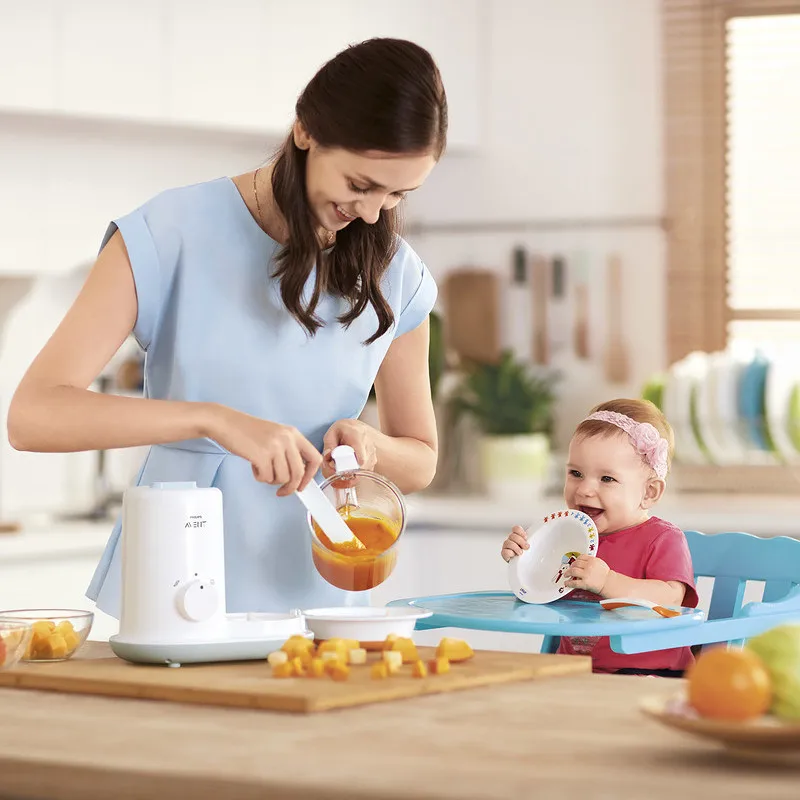 Beech-Nut baby foods come in recyclable glass jars and are available in both natural and organic varieties. Blends are available in every stage, from single-ingredient foods for brand-new eaters (like butternut squash and plum) to multi-food blends with chunkier textures for older babies.
Beech-Nut baby foods come in recyclable glass jars and are available in both natural and organic varieties. Blends are available in every stage, from single-ingredient foods for brand-new eaters (like butternut squash and plum) to multi-food blends with chunkier textures for older babies.
The ingredients in Beech-Nut baby foods are simple, with no artificial additives. Plus, these little glass jars are available at most grocery stores, so they’re easy to find. However, while it’s great for recycling purposes, glass can be dangerous — always supervise your little one around glass.
Beech-Nut Naturals are free of genetically modified organisms (GMOs) but not certified organic (unless you shop their organics line). They contain no added sugar.
Shop now at Walmart
Best organic baby food pouches
Plum Organics Stage 1
If sustainability, organic foods, and non-GMO ingredients are important to you, Plum Organics has a great line of baby food options to try.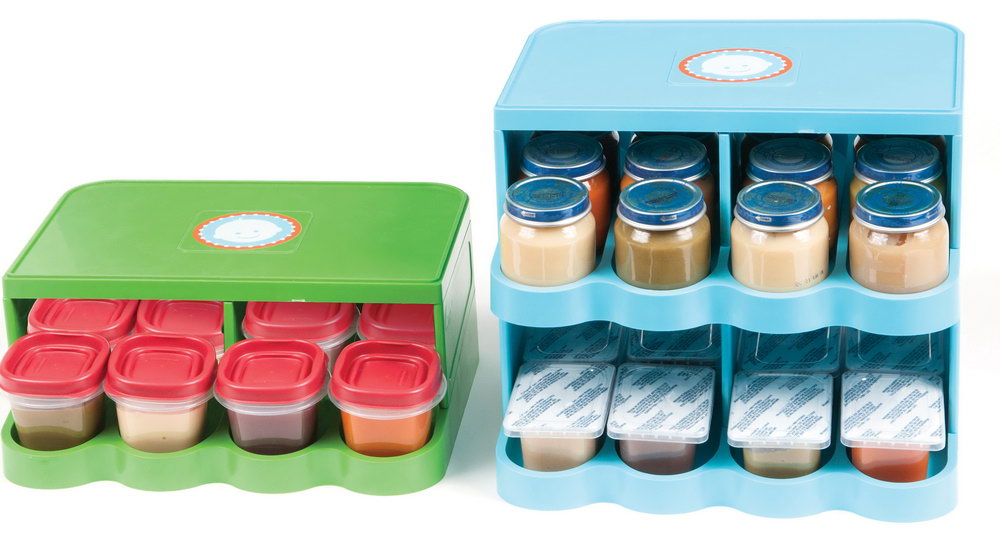
Their BPA-free pouches are super convenient and available in a variety of fruits, veggies, and grains for each stage of eating. These foods have no added salts or sugars, so they’re nutritious and simple for baby’s maturing digestive system. They’re also widely available and can be purchased in bulk for greater savings.
And while feeding experts definitely discourage using pouches exclusively, there’s no denying that pouches are very convenient for occasional on-the-go feedings. To make sure your baby is still progressing in their journey through solid foods, try squeezing the pouch contents into a spoon. And be sure to watch out for the small plastic caps, as they’re a choking hazard.
Plum Organics is certified organic and non-GMO, and their baby food doesn’t contain added sugar.
Shop now at Amazon
Best budget-friendly baby food
Gerber Organic 1st Foods
Gerber is the classic baby food brand, and they’ve made changes over the last few years to make their food more health-conscious (e.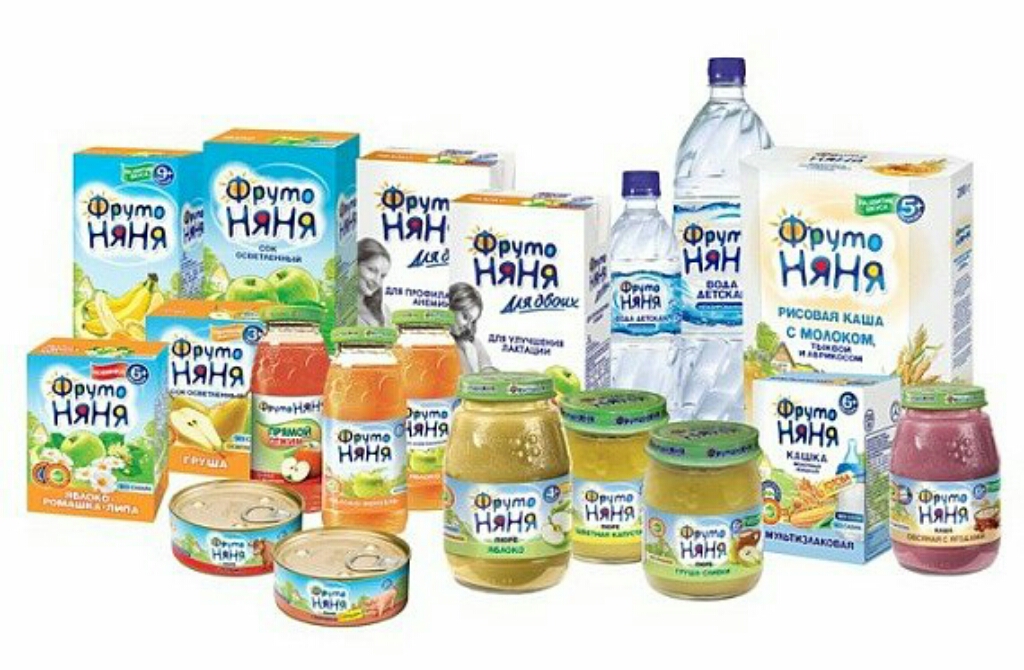 g., starting an organic line). Yet they have maintained their status as one of the most affordable prepared baby food brands on the market.
g., starting an organic line). Yet they have maintained their status as one of the most affordable prepared baby food brands on the market.
They offer benefits like glass jars, organic ingredients, and a wide variety of food choices at a lower cost than some other brands on our list.
Gerber Organic is USDA organic, non-GMO, and free of added sugar.
Shop now at Walmart
Best baby food for constipation
Gerber Natural 1st Foods (Pear)
Sometimes babies get a little constipated when they’re beginning their solid food journey, especially if they’re eating a lot of dairy or iron-fortified cereal. In addition to continuing breast milk, some foods may help relieve your little one’s digestive discomfort, including all the “P” fruits.
So prunes, pears, plums, and peaches are some options to help keep tiny bowels on the move. You can find great fruit purees in any brand on our list, but one of the more cost-effective is the Gerber brand. The good news is that many babies love fruit, so it shouldn’t be too hard to get your little one to down some prunes or pears.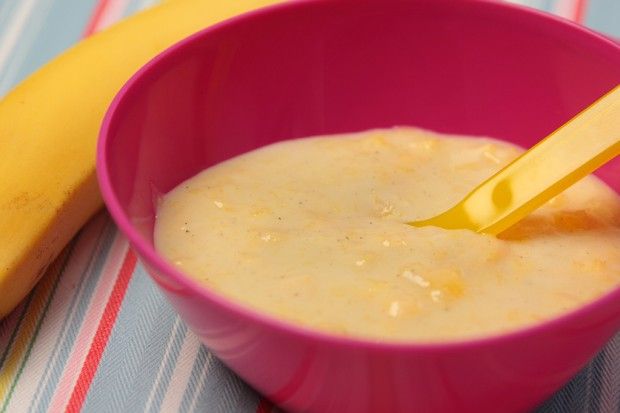
This product is made with non-GMO ingredients and pears grown with Clean Field Farming practices. It doesn’t contain added sugars.
Shop now at Walmart
Best organic jarred baby food
Happy Baby Organics Clearly Crafted Stage 1
Another great organic baby food option, the Happy Baby company offers their organic baby food jars at most stores — although not quite as widely as Beech-Nut and Plum Organics.
Happy Baby jars offer a wide variety of foods, from kale and mango to spinach and peaches and chia seeds. You can start with their single-ingredient jars (this is important for ruling out allergies, as well as to help baby learn to like spinach even when it’s not disguised by pears). Then, you can move on to their fruit and veggie blends as your little one grows.
High quality ingredients, creative flavors, and no artificial ingredients all make Happy Baby a solid (no pun intended) choice.
Happy Baby is USDA organic and doesn’t contain added sugars.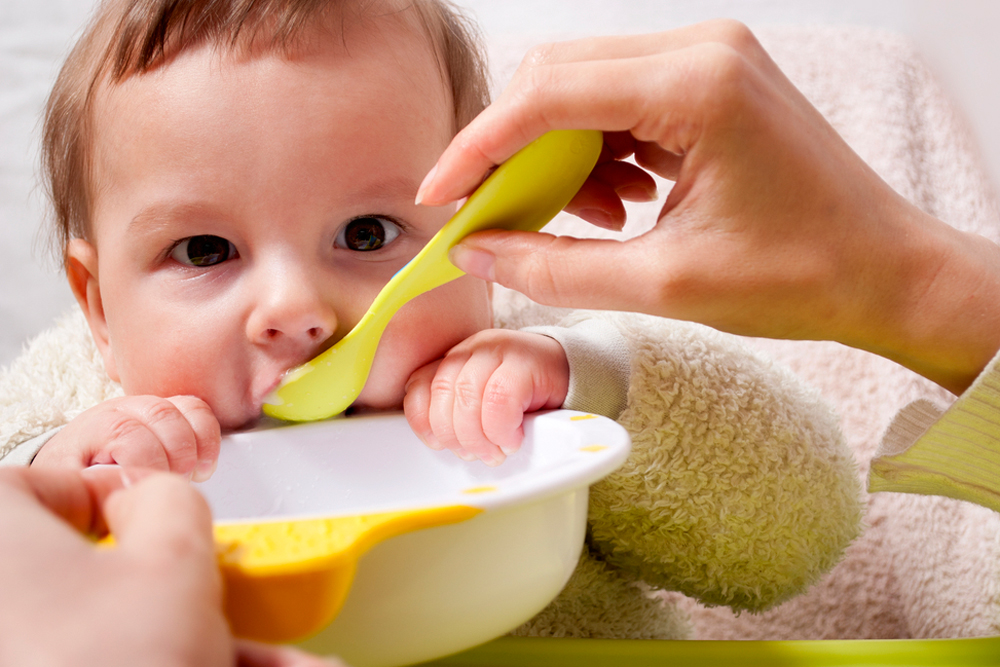
Shop now at Walmart
Best personalized subscription service
Cerebelly
Cerebelly allows you to personalize your subscription of baby food pouches based on your child’s age, leaning on science to determine what foods will benefit them at their stage of development.
You’ll take a quiz that asks about the current development and language cues your baby is showing (responding to their name, grasping toys, using noises to show emotion, etc.). It also asks about motor, social, and visual skills.
The results will clue you in on key nutrients that may benefit your little one and customize your baby food pouches based on this.
To boot, the brand has earned the Clean Label Project Purity Award (which evaluates products for toxins and contaminants), is certified USDA organic, and contains no added sugars.
Shop now at Cerebelly
Best fresh baby food
Once Upon a Farm Cold-Pressed Organic Baby Food
These organic, cold-pressed baby food pouches and cups are found in the refrigerated section at your grocery store (and yes, they have to be refrigerated at home).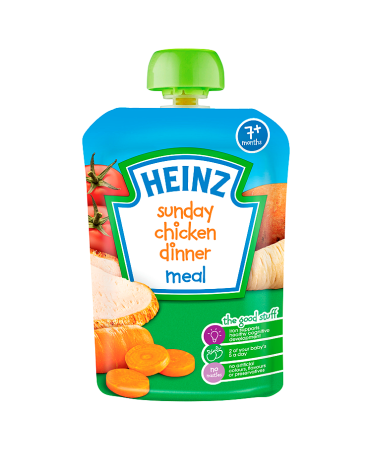 The company also has a subscription delivery option to make baby food even more convenient for your busy schedule.
The company also has a subscription delivery option to make baby food even more convenient for your busy schedule.
Creative names like Wild Rumpus Avocado and Magic Velvet Mango will have you smiling, and the variety of flavors will (hopefully!) appeal to your little one. Once Upon a Farm offers a variety of food stages, so you can start with their purees and move on up to their finger and toddler foods as your baby grows.
Once Upon a Farm is certified organic and non-GMO. Their products contain no added sugars and are Clean Label Project certified.
Shop now at Target
Best first baby cereal
Gerber Organic 1st Foods Single Grain Cereal
This simple cereal is a great first food for baby. You can mix this one-ingredient whole grain cereal with breast milk, formula, or water to provide your little one with some crucial nutrients (such as iron) and experience with spoons and textures.
The AAP recommends oatmeal or multigrain cereals over rice cereals, as they have a lower risk of exposure to chemicals such as arsenic (which is sometimes a concern with rice products).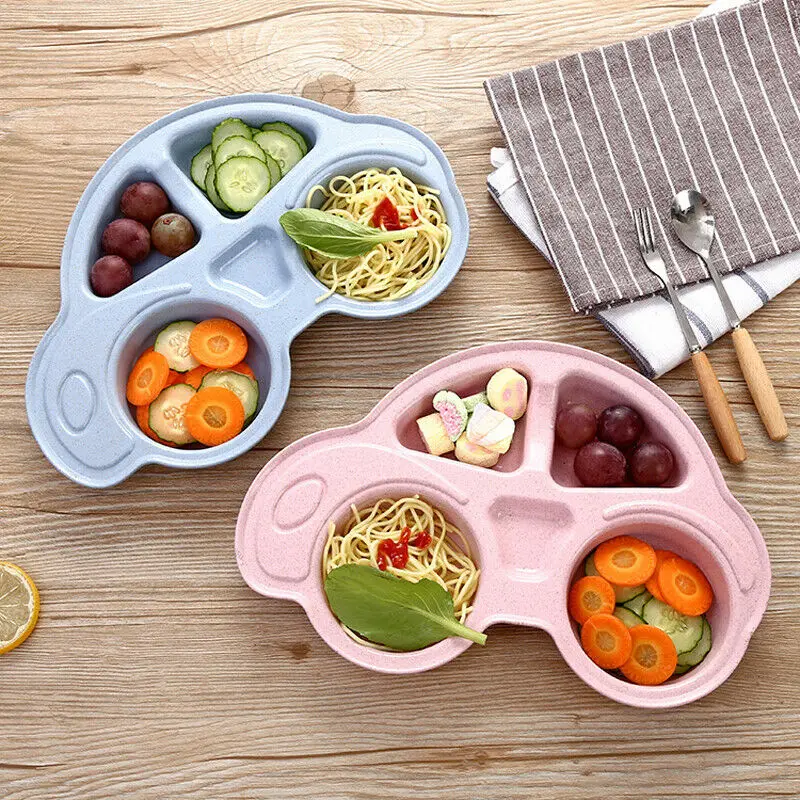
As your baby gets used to other foods, you can also mix this cereal with fruit or yogurt to provide a heartier meal.
Gerber Organic is certified USDA organic and non-GMO, but this product does contain some added sugars.
Shop now at Walmart
Best, most interesting baby food blends
Little Spoon Complex Solids
Once your baby is ready for more advanced blends, Little Spoon has a unique line of complex blends that contain multiple purees as well as other seeds and grains for texture.
For example, one blend contains quinoa, butternut squash, and apple. Another contains kale, white bean, pear, basil, quinoa, and avocado oil.
Little Spoon purees use certified organic and non-GMO ingredients. They’re free of added sugar.
Shop now at Little Spoon
Best all-around clean baby food
Baby Gourmet
Baby Gourmet is another Clean Label Project Purity Award winner, which means they go above and beyond to ensure their baby food is free of harmful toxins that naturally occur in the environment.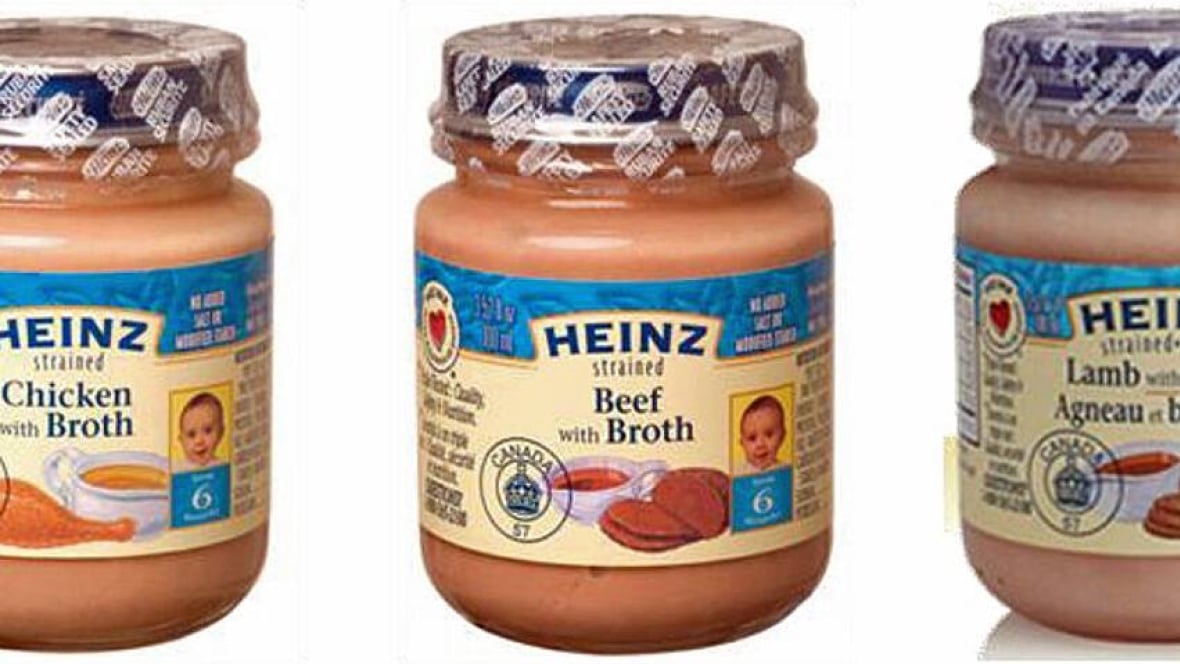
This Canadian company is also set to donate 1 million meals to vulnerable populations by 2025. It’s founded and run by moms, which can be reassuring.
Baby Gourmet is certified organic and non-GMO by both U.S. and Canadian standards. All packaging is BPA-free. Products contain no added sugar.
Shop now at Baby Gourmet
As a general guideline, it’s a good idea to start with iron-fortified baby cereals or pureed meats if your infant is breastfed. Breastfed babies are more likely to need extra iron than formula-fed babies.
It’s also advisable to start with simple, single-ingredient purees of meat, vegetables, and fruits.
Choosing brands that are certified organic, use BPA-free materials, and are conscious of using whole food ingredients (e.g., they don’t add “extras” like salt, sugar, or corn syrup) helps ensure a healthy start for your little one.
According to the AAP, you shouldn’t give babies under age 1 cow’s milk, honey, unpasteurized dairy, or undercooked meat, as these can be an infection risk for a baby’s developing immune system.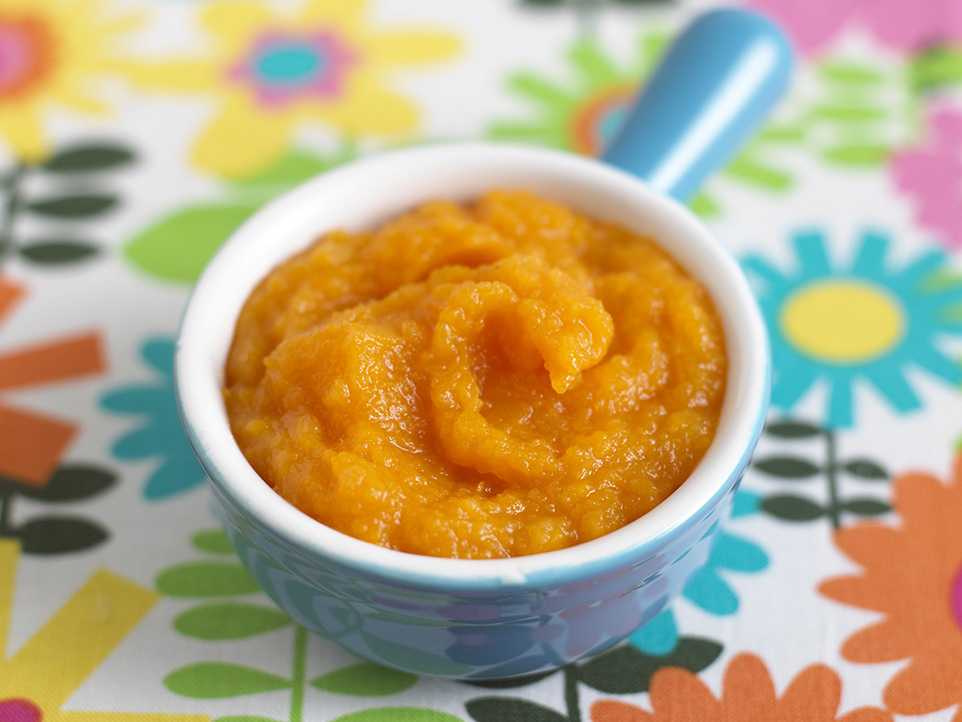
You’ll also want to avoid foods that are hard or sharp or present a choking risk (for instance, chips, nuts, popcorn, raisins, raw apples, raw carrots, whole grapes, hot dogs). For a more comprehensive guide to which foods to give and what to avoid, check out our article on infant nutrition and starting solids.
While experts used to advise waiting to introduce highly allergenic foods (such as dairy, wheat, nuts, and eggs) until after the first year, the experts now say that delayed introduction of these foods may increase a child’s risk of food allergies. So, with the guidance of your pediatrician, go ahead and introduce those foods within the first year.
Seek immediate emergency medical attention if you notice swelling of the tongue and mouth, wheezing, or trouble breathing after your child eats certain foods
Some babies are raring to go when it comes to trying food, while others may take a little more convincing. Either way, definitely get your camera on video mode, as there are bound to be some hilarious faces and some impressive food spillage along the way.
Here are some pro tips to help make the process as smooth as possible:
- Wait until your baby shows signs of readiness for solid food.
- Keep trying. It can take 5 to 10 exposures for a baby to accept a new food.
- Make it fun and silly.
- Cook and eat as a family as much as possible.
- Let your baby play with the spoon and even the food! While incredibly messy, this helps them get comfortable with the textures, smells, and tastes of new foods.
- Talk with your pediatrician if you have any questions or concerns. They’re a great resource and want to help you grow a happy, healthy baby.
What’s the best baby food for growth and weight gain?
If your baby is under 6 months and breastfeeding, it’s recommended that you stick to that exclusively for 6 months. When you’re ready to introduce solids after 6 months, it should be in addition to breastfeeding and formula, not as a replacement.
If your baby is formula-fed, they may begin eating solids sooner than 6 months.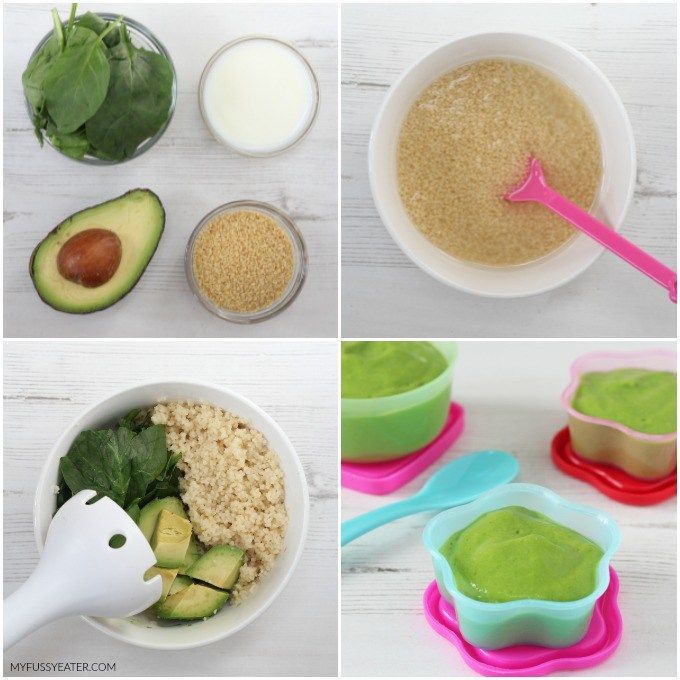 While no one specific food is recommended, a variety of foods and colors is best, including meats, vegetables, and fruits. One of the key foods that can help with growth and weight gain is avocados (high in healthy fats and fiber but low in sugar).
While no one specific food is recommended, a variety of foods and colors is best, including meats, vegetables, and fruits. One of the key foods that can help with growth and weight gain is avocados (high in healthy fats and fiber but low in sugar).
Always discuss your baby’s dietary changes with your pediatrician and attend regular checkups to monitor growth.
What’s the easiest food for babies to digest?
Just like adults, babies do best with regular bowel movements. If they’re having a hard time with this, oatmeal is one food known to be easy to digest and promote regularity, as it contains higher amounts of dietary fiber.
It may also help to focus on quantity. Try feeding your baby smaller meals more often, rather than fewer larger meals. This may be easier on their system and allow them to digest foods more easily.
What’s the best baby food to start with?
Mashed banana and avocado are some of the most popular solids to start with. Soft, ground oatmeal is also great. When it comes to fruit and vegetable purees, focus on variety, but don’t overdo it with those that are naturally high in sugar (such as berry purees).
When it comes to fruit and vegetable purees, focus on variety, but don’t overdo it with those that are naturally high in sugar (such as berry purees).
Most importantly, at 6 months old, all foods should still be pureed and cooked. Once your baby is 9 months old and older, you can start to introduce vegetables cut into pieces. The only other no-no is honey, which they shouldn’t have until they’re over a year old.
It can feel like a lot of pressure to choose the best nutrition for your child, especially when trying to capitalize on the years before they start demanding chicken nuggets and ice cream. But there are a lot of great, healthy options available in 2022.
Whether you choose to make your own baby food, buy jars or pouches, or use a baby food subscription service, there are a number of resources to help you feed your baby.
Jars, Pouches, Organic, and More
Share on PinterestWe include products we think are useful for our readers. If you buy through links on this page, we may earn a small commission.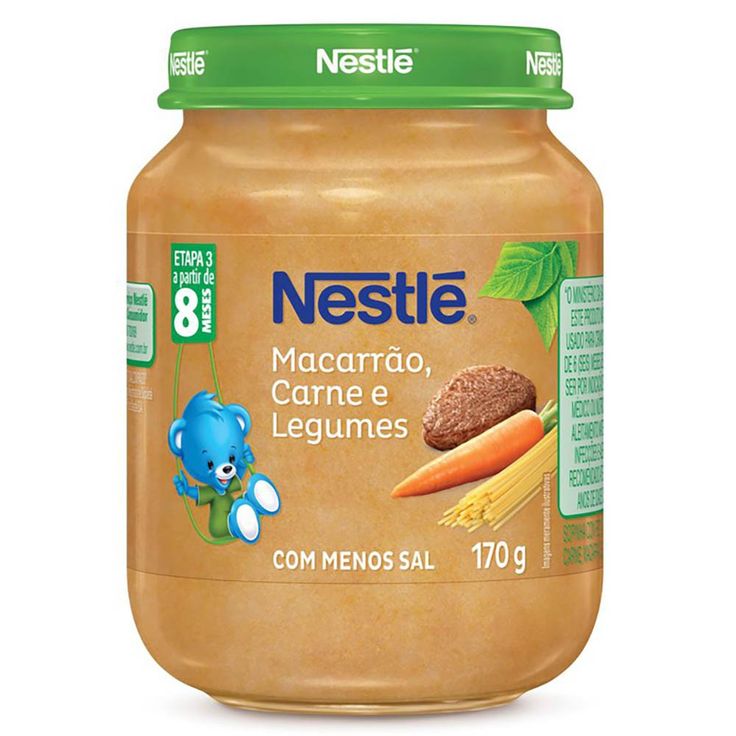 Here’s our process.
Here’s our process.
After months of breastfeeding or bottle-feeding, it can be surprising to realize that your still-tiny baby is actually ready for “real” food. This exciting (albeit messy!) transition may be a little bittersweet and can feel overwhelming, especially considering the numerous baby food options available in 2022.
We’ve rounded up some of this year’s best baby foods to help you get started on the right foot — er, spoon.
Both the World Health Organization and the American Academy of Pediatrics (AAP) recommend exclusively breastfeeding babies for the first 6 months of life. Formula-fed infants are ready to start solid foods when they start showing signs that they’re ready.
In some cases, you may start solids around 4 or 5 months, but it’s best to discuss this with your pediatrician. If your doctor doesn’t have a different recommendation, most babies are ready to start soft or pureed foods by the time they’re about 6 months old.
If you’re picking commercially prepared baby food (versus making your own), it’s wise to start with simple, one-ingredient baby food.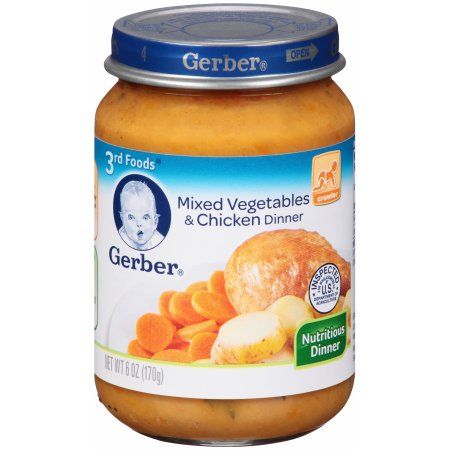 Most commercial baby food is labeled stage 1, 2, or 3 based on the texture and number of ingredients.
Most commercial baby food is labeled stage 1, 2, or 3 based on the texture and number of ingredients.
For instance, stage 1 baby food has the smoothest texture and typically has one ingredient, such as pureed pears. So, for your 4- to 6-month-old, you’ll want to start with stage 1 baby food.
Starting with one food at a time helps you monitor for any adverse reactions or food allergies. The American Academy of Allergy, Asthma & Immunology recommends monitoring each food for 3 to 5 days.
There isn’t really a perfect first food — the choice is yours! Some good foods to start: infant cereal (preferably oat or whole grain), meat purees such as chicken or turkey, or single-ingredient purees of fruits or veggies.
If you’re debating whether to start with fruits or veggies first, the AAP suggests that an infant’s preferences for sweets won’t budge even if veggies are introduced first. Mashed peas just don’t taste as good once you’ve had applesauce.
We chatted with pediatricians, read the research, polled real-life parents, read reviews, and used our own babies as taste testers (although we can’t say their opinions on nutritional value are very authoritative) to bring you some of the top baby food brands available.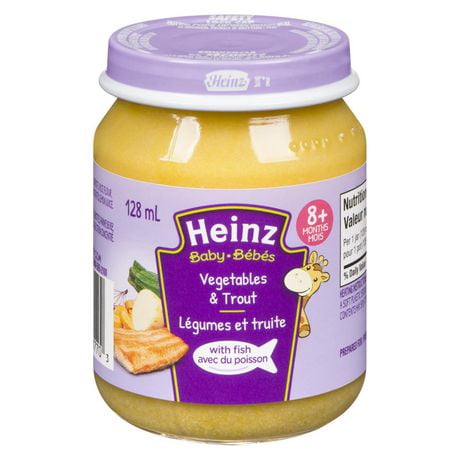 In addition:
In addition:
- We looked for foods that are certified USDA organic and have non-GMO verified ingredients.
- We focused on baby food that’s free of added sugar (but have called out one or two products that contain it).
- The baby foods on our list are free of harmful preservatives.
- We called out the brands that market their products as gluten-free and allergen-free.
All products are also vetted by our medical standards team, which evaluates brand integrity and product safety.
Reducing Exposure to Toxic Elements in Baby Foods
Three brands in this article — Gerber, Beech-Nut, and Happy Baby — were mentioned in a February 2021 Congressional Report for products containing significantly high levels of toxic heavy metals, including arsenic, lead, cadmium, and mercury. The FDA has since launched the Closer to Zero: Action Plan for Baby Foods to address exposure to toxic elements from eating baby foods.
- Best overall baby food: Beech-Nut Naturals Stage 1
- Best organic baby food pouches: Plum Organics Stage 1
- Best budget-friendly baby food: Gerber Organic 1st Foods
- Best baby food for constipation: Gerber Natural 1st Foods (Pear)
- Best organic jarred baby food: Happy Baby Organics Clearly Crafted Stage 1
- Best personalized subscription service: Cerebelly
- Best fresh baby food: Once Upon a Farm Cold-Pressed Organic Baby Food
- Best first baby cereal: Gerber Organic 1st Foods Single Grain Cereal
- Best, most interesting baby food blends: Little Spoon Complex Solids
- Best all-around clean baby food: Baby Gourmet
Best overall baby food
Beech-Nut Naturals Stage 1
This affordable baby food is an all-around fan favorite.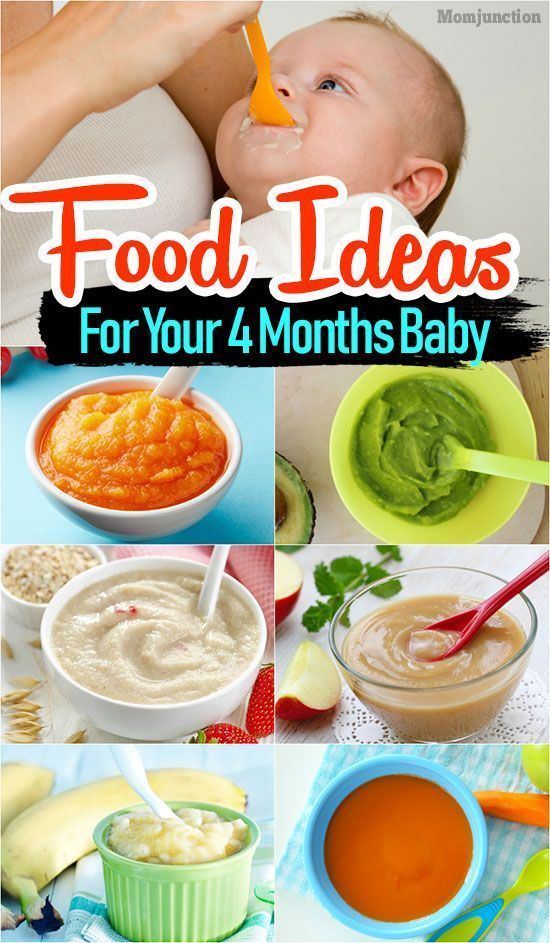 Beech-Nut baby foods come in recyclable glass jars and are available in both natural and organic varieties. Blends are available in every stage, from single-ingredient foods for brand-new eaters (like butternut squash and plum) to multi-food blends with chunkier textures for older babies.
Beech-Nut baby foods come in recyclable glass jars and are available in both natural and organic varieties. Blends are available in every stage, from single-ingredient foods for brand-new eaters (like butternut squash and plum) to multi-food blends with chunkier textures for older babies.
The ingredients in Beech-Nut baby foods are simple, with no artificial additives. Plus, these little glass jars are available at most grocery stores, so they’re easy to find. However, while it’s great for recycling purposes, glass can be dangerous — always supervise your little one around glass.
Beech-Nut Naturals are free of genetically modified organisms (GMOs) but not certified organic (unless you shop their organics line). They contain no added sugar.
Shop now at Walmart
Best organic baby food pouches
Plum Organics Stage 1
If sustainability, organic foods, and non-GMO ingredients are important to you, Plum Organics has a great line of baby food options to try.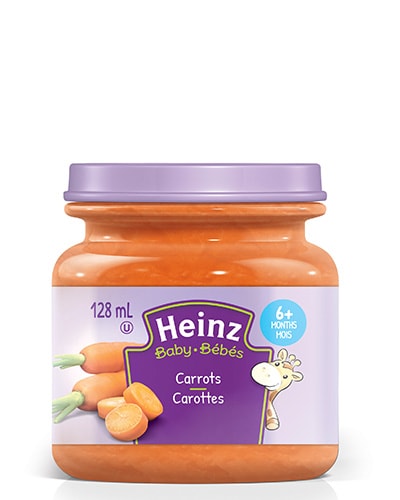
Their BPA-free pouches are super convenient and available in a variety of fruits, veggies, and grains for each stage of eating. These foods have no added salts or sugars, so they’re nutritious and simple for baby’s maturing digestive system. They’re also widely available and can be purchased in bulk for greater savings.
And while feeding experts definitely discourage using pouches exclusively, there’s no denying that pouches are very convenient for occasional on-the-go feedings. To make sure your baby is still progressing in their journey through solid foods, try squeezing the pouch contents into a spoon. And be sure to watch out for the small plastic caps, as they’re a choking hazard.
Plum Organics is certified organic and non-GMO, and their baby food doesn’t contain added sugar.
Shop now at Amazon
Best budget-friendly baby food
Gerber Organic 1st Foods
Gerber is the classic baby food brand, and they’ve made changes over the last few years to make their food more health-conscious (e.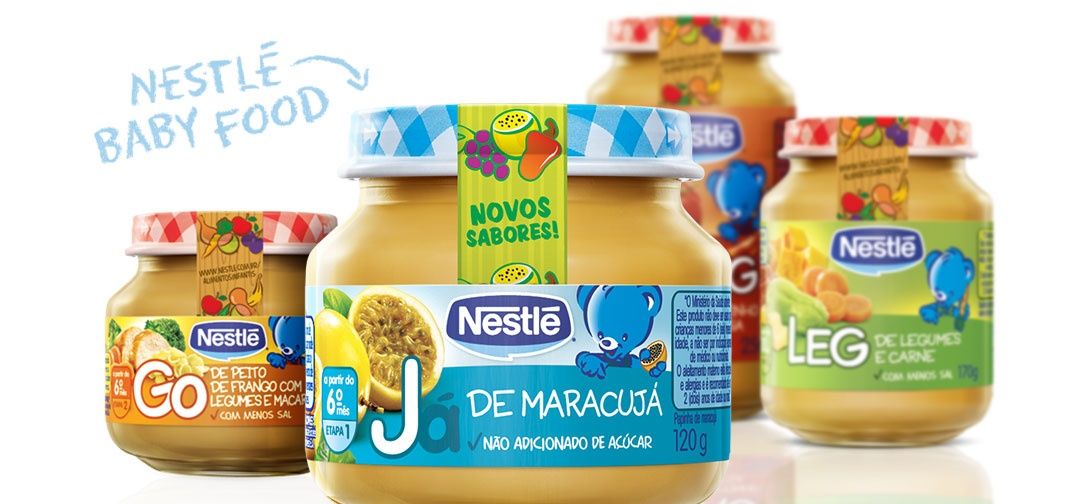 g., starting an organic line). Yet they have maintained their status as one of the most affordable prepared baby food brands on the market.
g., starting an organic line). Yet they have maintained their status as one of the most affordable prepared baby food brands on the market.
They offer benefits like glass jars, organic ingredients, and a wide variety of food choices at a lower cost than some other brands on our list.
Gerber Organic is USDA organic, non-GMO, and free of added sugar.
Shop now at Walmart
Best baby food for constipation
Gerber Natural 1st Foods (Pear)
Sometimes babies get a little constipated when they’re beginning their solid food journey, especially if they’re eating a lot of dairy or iron-fortified cereal. In addition to continuing breast milk, some foods may help relieve your little one’s digestive discomfort, including all the “P” fruits.
So prunes, pears, plums, and peaches are some options to help keep tiny bowels on the move. You can find great fruit purees in any brand on our list, but one of the more cost-effective is the Gerber brand. The good news is that many babies love fruit, so it shouldn’t be too hard to get your little one to down some prunes or pears.
This product is made with non-GMO ingredients and pears grown with Clean Field Farming practices. It doesn’t contain added sugars.
Shop now at Walmart
Best organic jarred baby food
Happy Baby Organics Clearly Crafted Stage 1
Another great organic baby food option, the Happy Baby company offers their organic baby food jars at most stores — although not quite as widely as Beech-Nut and Plum Organics.
Happy Baby jars offer a wide variety of foods, from kale and mango to spinach and peaches and chia seeds. You can start with their single-ingredient jars (this is important for ruling out allergies, as well as to help baby learn to like spinach even when it’s not disguised by pears). Then, you can move on to their fruit and veggie blends as your little one grows.
High quality ingredients, creative flavors, and no artificial ingredients all make Happy Baby a solid (no pun intended) choice.
Happy Baby is USDA organic and doesn’t contain added sugars.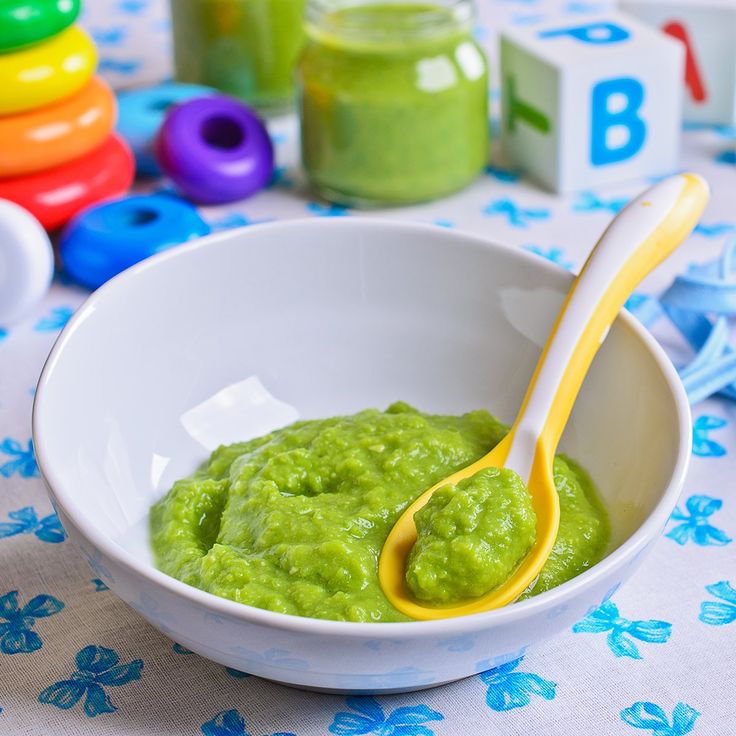
Shop now at Walmart
Best personalized subscription service
Cerebelly
Cerebelly allows you to personalize your subscription of baby food pouches based on your child’s age, leaning on science to determine what foods will benefit them at their stage of development.
You’ll take a quiz that asks about the current development and language cues your baby is showing (responding to their name, grasping toys, using noises to show emotion, etc.). It also asks about motor, social, and visual skills.
The results will clue you in on key nutrients that may benefit your little one and customize your baby food pouches based on this.
To boot, the brand has earned the Clean Label Project Purity Award (which evaluates products for toxins and contaminants), is certified USDA organic, and contains no added sugars.
Shop now at Cerebelly
Best fresh baby food
Once Upon a Farm Cold-Pressed Organic Baby Food
These organic, cold-pressed baby food pouches and cups are found in the refrigerated section at your grocery store (and yes, they have to be refrigerated at home). The company also has a subscription delivery option to make baby food even more convenient for your busy schedule.
The company also has a subscription delivery option to make baby food even more convenient for your busy schedule.
Creative names like Wild Rumpus Avocado and Magic Velvet Mango will have you smiling, and the variety of flavors will (hopefully!) appeal to your little one. Once Upon a Farm offers a variety of food stages, so you can start with their purees and move on up to their finger and toddler foods as your baby grows.
Once Upon a Farm is certified organic and non-GMO. Their products contain no added sugars and are Clean Label Project certified.
Shop now at Target
Best first baby cereal
Gerber Organic 1st Foods Single Grain Cereal
This simple cereal is a great first food for baby. You can mix this one-ingredient whole grain cereal with breast milk, formula, or water to provide your little one with some crucial nutrients (such as iron) and experience with spoons and textures.
The AAP recommends oatmeal or multigrain cereals over rice cereals, as they have a lower risk of exposure to chemicals such as arsenic (which is sometimes a concern with rice products).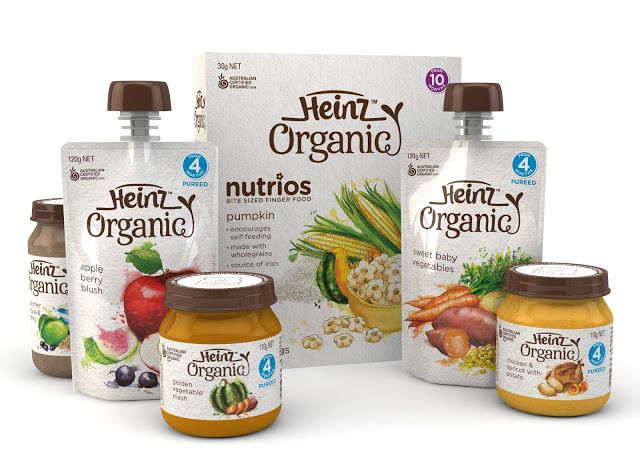
As your baby gets used to other foods, you can also mix this cereal with fruit or yogurt to provide a heartier meal.
Gerber Organic is certified USDA organic and non-GMO, but this product does contain some added sugars.
Shop now at Walmart
Best, most interesting baby food blends
Little Spoon Complex Solids
Once your baby is ready for more advanced blends, Little Spoon has a unique line of complex blends that contain multiple purees as well as other seeds and grains for texture.
For example, one blend contains quinoa, butternut squash, and apple. Another contains kale, white bean, pear, basil, quinoa, and avocado oil.
Little Spoon purees use certified organic and non-GMO ingredients. They’re free of added sugar.
Shop now at Little Spoon
Best all-around clean baby food
Baby Gourmet
Baby Gourmet is another Clean Label Project Purity Award winner, which means they go above and beyond to ensure their baby food is free of harmful toxins that naturally occur in the environment.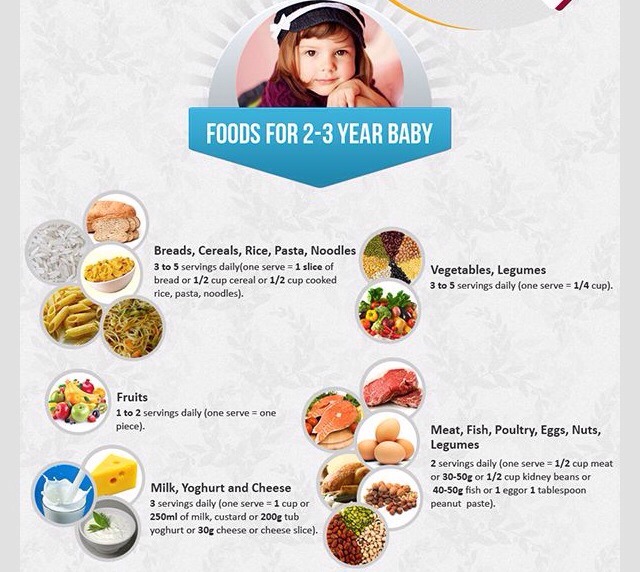
This Canadian company is also set to donate 1 million meals to vulnerable populations by 2025. It’s founded and run by moms, which can be reassuring.
Baby Gourmet is certified organic and non-GMO by both U.S. and Canadian standards. All packaging is BPA-free. Products contain no added sugar.
Shop now at Baby Gourmet
As a general guideline, it’s a good idea to start with iron-fortified baby cereals or pureed meats if your infant is breastfed. Breastfed babies are more likely to need extra iron than formula-fed babies.
It’s also advisable to start with simple, single-ingredient purees of meat, vegetables, and fruits.
Choosing brands that are certified organic, use BPA-free materials, and are conscious of using whole food ingredients (e.g., they don’t add “extras” like salt, sugar, or corn syrup) helps ensure a healthy start for your little one.
According to the AAP, you shouldn’t give babies under age 1 cow’s milk, honey, unpasteurized dairy, or undercooked meat, as these can be an infection risk for a baby’s developing immune system.
You’ll also want to avoid foods that are hard or sharp or present a choking risk (for instance, chips, nuts, popcorn, raisins, raw apples, raw carrots, whole grapes, hot dogs). For a more comprehensive guide to which foods to give and what to avoid, check out our article on infant nutrition and starting solids.
While experts used to advise waiting to introduce highly allergenic foods (such as dairy, wheat, nuts, and eggs) until after the first year, the experts now say that delayed introduction of these foods may increase a child’s risk of food allergies. So, with the guidance of your pediatrician, go ahead and introduce those foods within the first year.
Seek immediate emergency medical attention if you notice swelling of the tongue and mouth, wheezing, or trouble breathing after your child eats certain foods
Some babies are raring to go when it comes to trying food, while others may take a little more convincing. Either way, definitely get your camera on video mode, as there are bound to be some hilarious faces and some impressive food spillage along the way.
Here are some pro tips to help make the process as smooth as possible:
- Wait until your baby shows signs of readiness for solid food.
- Keep trying. It can take 5 to 10 exposures for a baby to accept a new food.
- Make it fun and silly.
- Cook and eat as a family as much as possible.
- Let your baby play with the spoon and even the food! While incredibly messy, this helps them get comfortable with the textures, smells, and tastes of new foods.
- Talk with your pediatrician if you have any questions or concerns. They’re a great resource and want to help you grow a happy, healthy baby.
What’s the best baby food for growth and weight gain?
If your baby is under 6 months and breastfeeding, it’s recommended that you stick to that exclusively for 6 months. When you’re ready to introduce solids after 6 months, it should be in addition to breastfeeding and formula, not as a replacement.
If your baby is formula-fed, they may begin eating solids sooner than 6 months.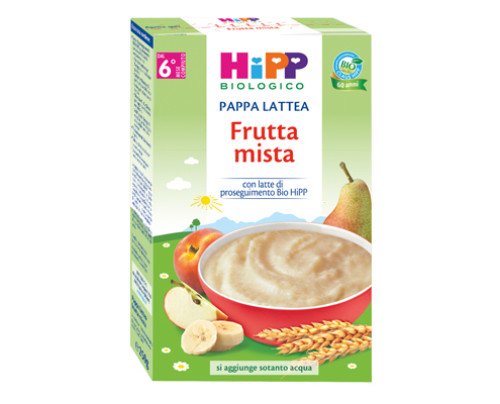 While no one specific food is recommended, a variety of foods and colors is best, including meats, vegetables, and fruits. One of the key foods that can help with growth and weight gain is avocados (high in healthy fats and fiber but low in sugar).
While no one specific food is recommended, a variety of foods and colors is best, including meats, vegetables, and fruits. One of the key foods that can help with growth and weight gain is avocados (high in healthy fats and fiber but low in sugar).
Always discuss your baby’s dietary changes with your pediatrician and attend regular checkups to monitor growth.
What’s the easiest food for babies to digest?
Just like adults, babies do best with regular bowel movements. If they’re having a hard time with this, oatmeal is one food known to be easy to digest and promote regularity, as it contains higher amounts of dietary fiber.
It may also help to focus on quantity. Try feeding your baby smaller meals more often, rather than fewer larger meals. This may be easier on their system and allow them to digest foods more easily.
What’s the best baby food to start with?
Mashed banana and avocado are some of the most popular solids to start with. Soft, ground oatmeal is also great.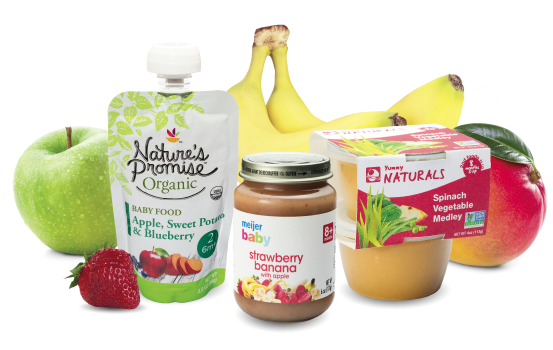 When it comes to fruit and vegetable purees, focus on variety, but don’t overdo it with those that are naturally high in sugar (such as berry purees).
When it comes to fruit and vegetable purees, focus on variety, but don’t overdo it with those that are naturally high in sugar (such as berry purees).
Most importantly, at 6 months old, all foods should still be pureed and cooked. Once your baby is 9 months old and older, you can start to introduce vegetables cut into pieces. The only other no-no is honey, which they shouldn’t have until they’re over a year old.
It can feel like a lot of pressure to choose the best nutrition for your child, especially when trying to capitalize on the years before they start demanding chicken nuggets and ice cream. But there are a lot of great, healthy options available in 2022.
Whether you choose to make your own baby food, buy jars or pouches, or use a baby food subscription service, there are a number of resources to help you feed your baby.
how to choose and what kind of baby food is better?
The ideal "baby food" for an infant is breast milk. However, not all mothers can breastfeed their baby, usually this is due to the health of the mother or child.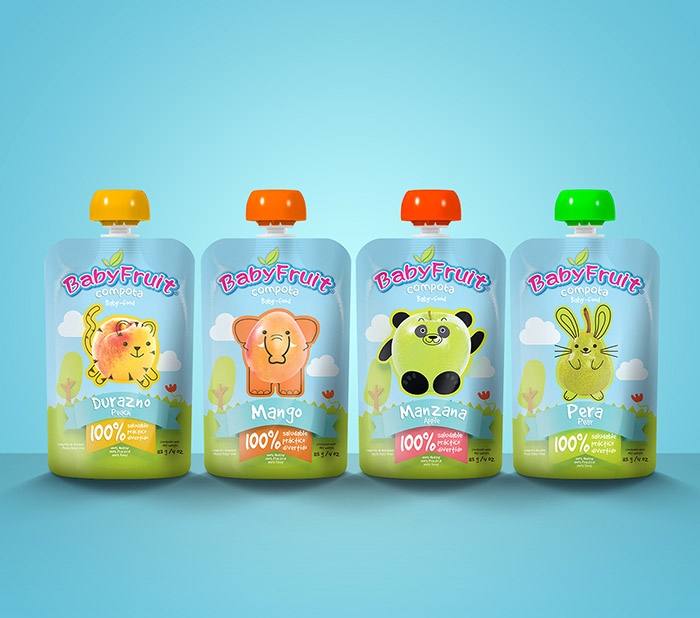 It happens that the woman herself has a serious condition after childbirth and in the early postoperative period, reduced lactation or diseases in which breastfeeding is contraindicated. In such cases, the baby is given formula milk - this is the only alternative to mother's milk. Subsequently, at four to seven months, complementary foods should be introduced into the child's diet, regardless of whether he is breastfed or artificial. The mother is faced with the task of choosing the right baby food for complementary foods.
It happens that the woman herself has a serious condition after childbirth and in the early postoperative period, reduced lactation or diseases in which breastfeeding is contraindicated. In such cases, the baby is given formula milk - this is the only alternative to mother's milk. Subsequently, at four to seven months, complementary foods should be introduced into the child's diet, regardless of whether he is breastfed or artificial. The mother is faced with the task of choosing the right baby food for complementary foods.
In this article, we will talk about what foods for babies are and how to choose the best baby food.
Legislation under "baby food" means food products that meet the physiological needs of the body of a child under 14 years of age. And nutrition for young children is food intended for children from birth to three years[1]. It is necessary to make a diet taking into account the age of the baby and the characteristics of his physical condition.
The Union of Pediatricians of Russia created the National Program for feeding children in the first year of life and the National Program for optimizing the nutrition of children from one to three years old [2]. They describe recommendations regarding what formula to feed the baby from birth, how to introduce complementary foods and expand the baby's diet. These programs provide detailed information on what nutrients and nutrients should be included in the diet of children of different ages.
First you need to figure out what kind of baby food is [3]. Products for toddlers can be divided into two categories:
Infant formula. There are for children from birth to six months (formula 1 mixtures, or initial), from six months to a year (formula 2) and from a year (formula 3). The composition of such baby food is adapted, that is, as close as possible to the composition of breast milk.
- In the initial mixtures, the amount of protein is reduced to 1.
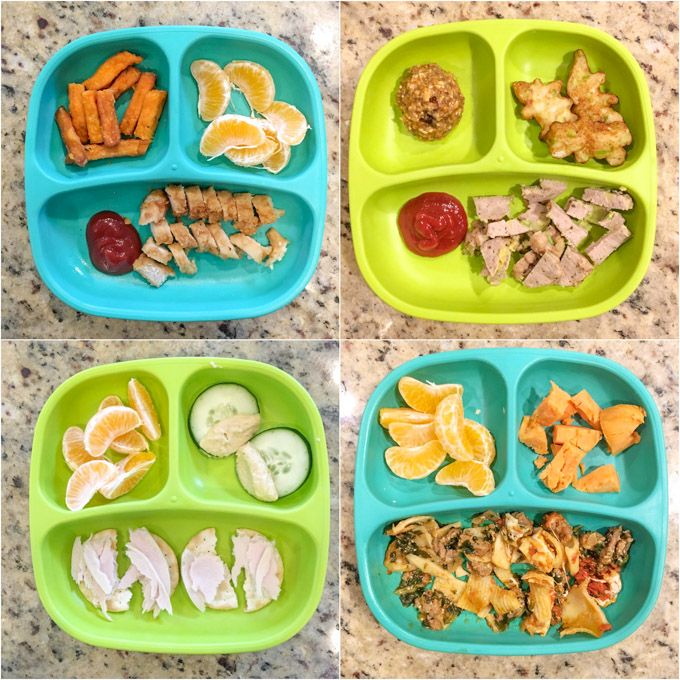 2-1.5 g / 100 ml - in accordance with the composition of breast milk. They also changed the fat and mineral profile. The initial mixtures are enriched with such an essential amino acid as taurine, and micronutrients, probiotics, vitamins.
2-1.5 g / 100 ml - in accordance with the composition of breast milk. They also changed the fat and mineral profile. The initial mixtures are enriched with such an essential amino acid as taurine, and micronutrients, probiotics, vitamins. - After six months, the baby's need for protein increases, mother's milk changes its composition. And babies on artificial feeding begin to be fed with a more nutritious mixture of formula 2. Taurine is no longer always needed: the body of a baby aged from six months to a year is able to synthesize this amino acid itself. Meanwhile, the content of iron, calcium, zinc increases compared to the initial mixtures, because by this age the child's reserves of minerals received from the mother during pregnancy are depleted, and they need to be replenished.
- A child's diet changes after one year - he is already able to eat a variety of solid foods. However, it is advisable to continue to feed him with a mixture, though already formula 3. Pediatricians recommend it as a source of vitamins and minerals that the baby can easily absorb.
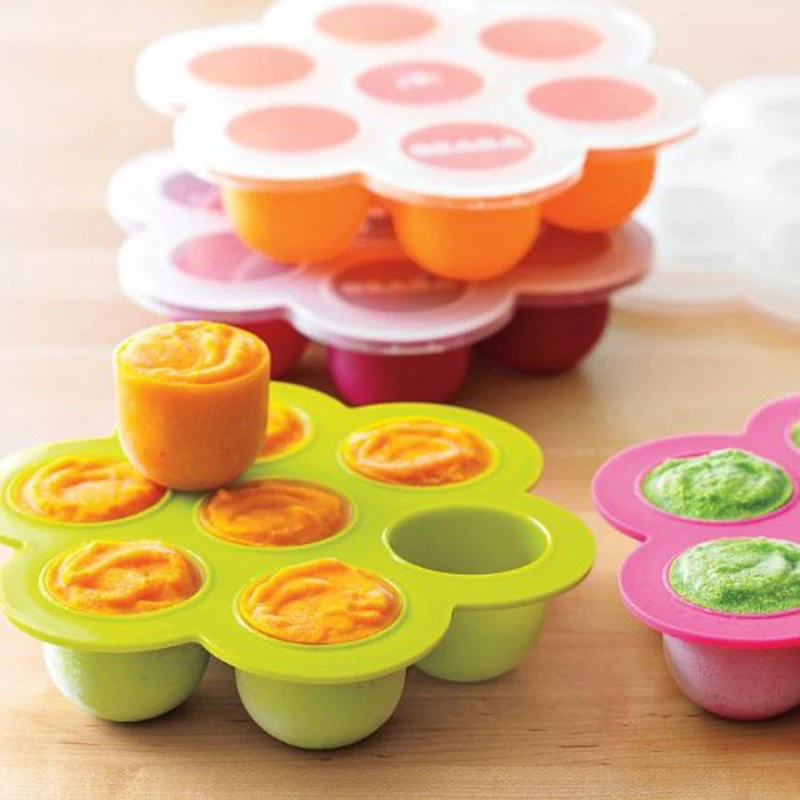
Complementary foods As we have already noted, it is introduced when the baby is four to seven months old. This interval is called the "critical window" and is considered optimal for the initiation of complementary foods for several reasons:
- The baby needs a wider range of minerals, vitamins and other nutrients. In addition, his baby's digestive system is already ready to accept more solid and complex foods than mother's milk or infant formula.
- At this age, the child develops an interest in food, and it is necessary to offer him the right foods to develop his taste.
- During this period, the risk of developing a food allergy to a new product is lower.
- Timely introduction of complementary foods prevents the risk of micronutrient deficiencies and iron deficiency anemia.
Usually the first food is vegetable puree or monocomponent gluten-free cereals, dairy or dairy-free. Over time, cereals containing gluten, supplements from fruits and berries, and also consisting of several cereals are added.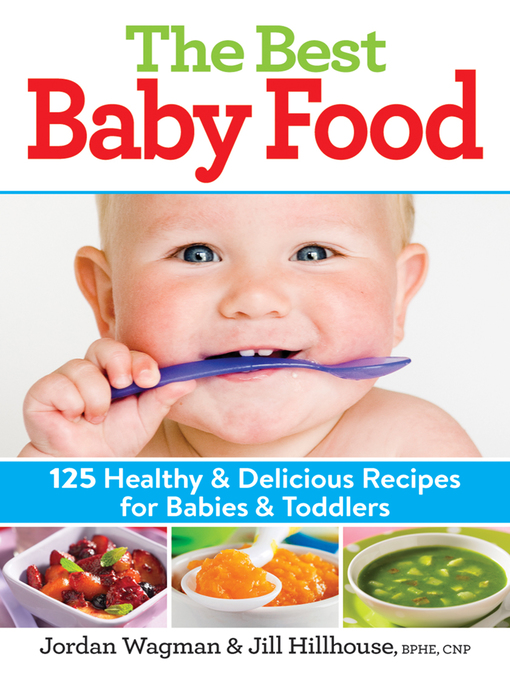 A six-month-old child can already be given several types of vegetables and cereals. Also, at about six months, they begin to give meat puree, then fruit, and from eight months - fish. A child from seven months is allowed the yolk.
A six-month-old child can already be given several types of vegetables and cereals. Also, at about six months, they begin to give meat puree, then fruit, and from eight months - fish. A child from seven months is allowed the yolk.
From the age of 12 months, complementary foods already make up the majority of your baby's diet. At this age, it is especially important to diversify the child's diet: he can be given soups with small pieces of vegetables, meat, fish and cereals.
Information
During the first feeding, the baby's eating habits are laid, and it depends on the parents how correct they will be. Often, mothers introduce fruit juices into complementary foods too early. And because babies have an innate preference for sweet tastes, they can become naughty and stop eating the unsweetened foods they need, especially vegetables. Unhealthy taste habits are formed, which can later provoke obesity.
Domestic doctors are concerned about such irrational nutrition of young children - due to the wrong approach to nutrition, many babies experience a deficiency of vitamins and an excess of fast carbohydrates.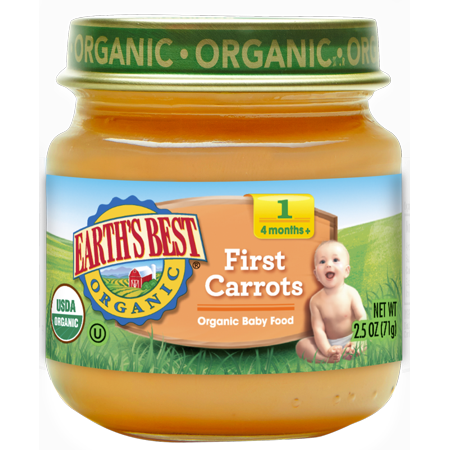
How to choose baby foods
Finding the right foods for your baby is not an easy task. Store shelves are bursting with boxes, jars and bottles, and manufacturers write on every second package that the baby will be healthy, strong and cheerful after feeding. Of course, the baby will receive the necessary substances, no matter what product his parents choose, because all the production of baby food is strictly controlled by the state. By the way, Russia has some of the most stringent requirements for the quality of baby food in the world.
However, products for children differ in their properties. It is necessary to select food so that by the end of the first year of life the baby has actively developed chewing skills and an interest in independence, and the diet of complementary foods is reasonably varied.
For children from one to three years of age, the diet should be even more varied. It is important that the child receives daily something new from the main food groups: dairy, vegetables and fruits, meat and fish, cereals, butter and vegetable oil.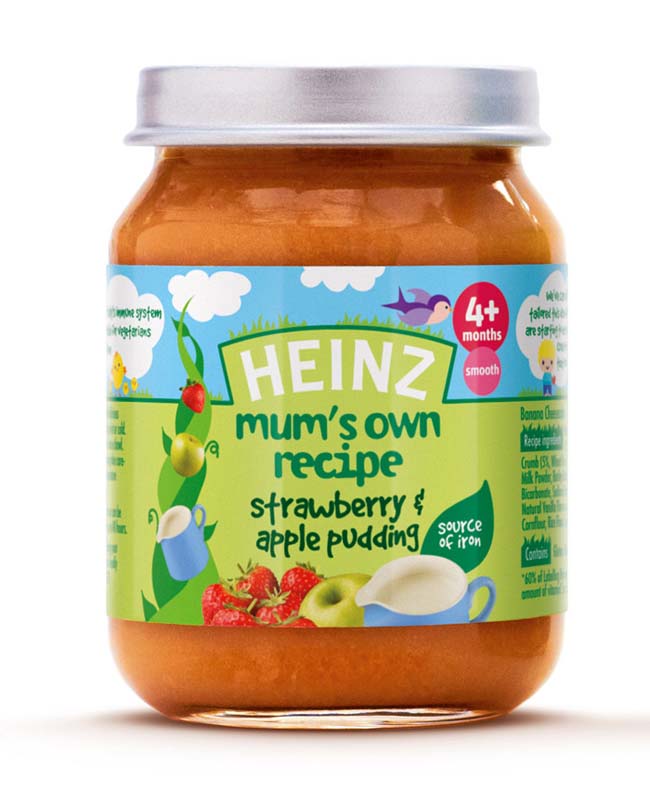 Of course, the baby's diet should be expanded taking into account his state of health.
Of course, the baby's diet should be expanded taking into account his state of health.
When organizing the nutrition of a child from the moment of introduction of complementary foods and up to three years, a mother needs not only to know what can be fed, but also to consider what foods should not be included in the diet. Among the prohibited products for children under three years of age:
- any mushrooms, vegetables and fruits in a marinade;
- pickles, preserves in tomato sauce;
- commercial juice concentrates, carbonated drinks, coffee and strong tea;
- various condiments - mustard, ketchup, hot sauces, horseradish, pepper, vinegar, mayonnaise;
- products containing flavors, industrial colors, including chewing gum;
- margarine and refractory fats - lamb, pork;
- chocolates, sweets and other sweets.
To choose the right baby food, you need to know exactly what you should pay attention to and what you don't need to worry about.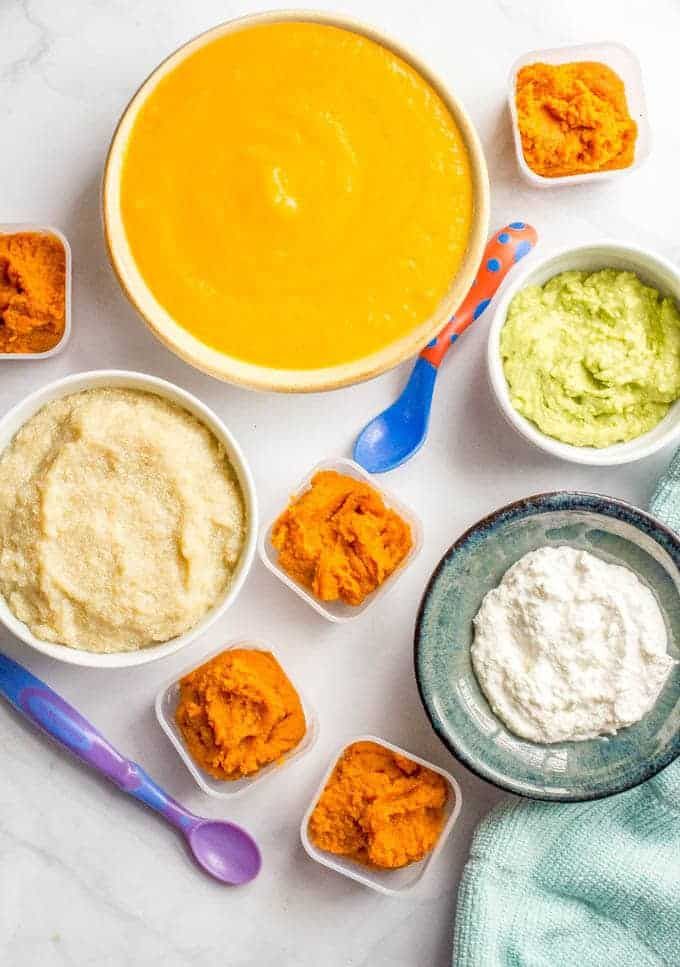
When choosing mixtures, it is important to check:
- Absence of palm oil. Formula manufacturers may use palm oil (more specifically palm extract) because, like breast milk, it is rich in palmitic acid. However, in human milk, palmitic acid is in the beta position, while in palm oil it is in the alpha position. Such alpha-palmitic acid can interfere with the absorption of calcium and fats and is generally less well absorbed by the child's body. This can negatively affect the work of the intestines, lead to constipation, regurgitation. Milk fat is better suited for baby food as a source of palmitic acid[4][5].
- Protein ratio. Breast milk protein is primarily whey proteins and casein. A child needs both types of protein, while proteins are easily digested, which cannot be said about casein. If baby food contains a lot of casein, it stays longer in the digestive tract, which can cause problems with the baby's stool.
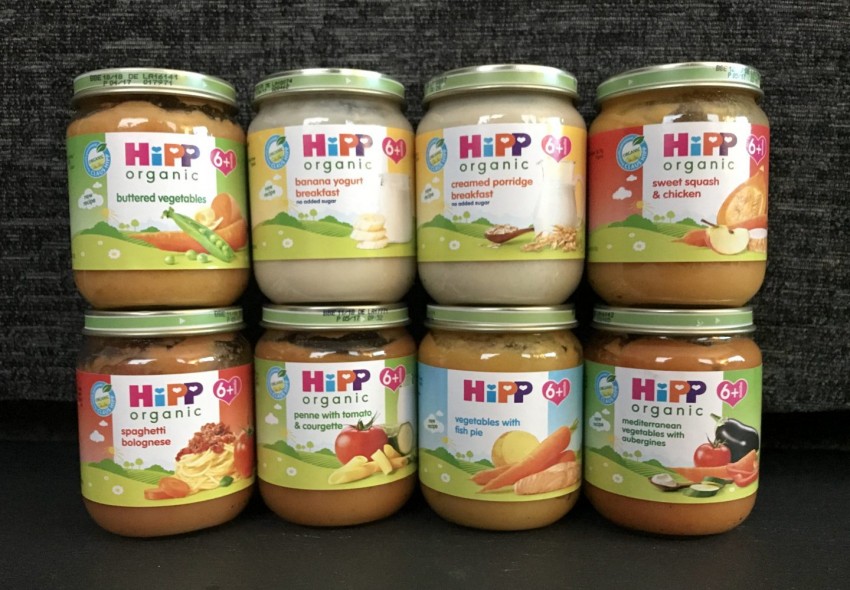
- The presence of additional functional elements in the composition - lutein, nucleotides, pre- and probiotics. The task of lutein is to protect vision from ultraviolet rays. Nucleotides are low molecular weight compounds that promote the growth of beneficial bifidobacteria in the intestines. And pre- and probiotics in the composition of infant formulas help to establish comfortable digestion.
When choosing complementary foods, pay attention to:
- Age appropriate. It is important that in the diet of a child under three years of age who receives complementary foods, special children's products predominate - in their composition the components are selected taking into account the age-related needs of the baby's body. It is impossible at an early age to transfer children to "adult" foods like pickles, smoked foods, fast food, and so on.
- Fortified products. It is important that the composition contains vitamins and minerals.
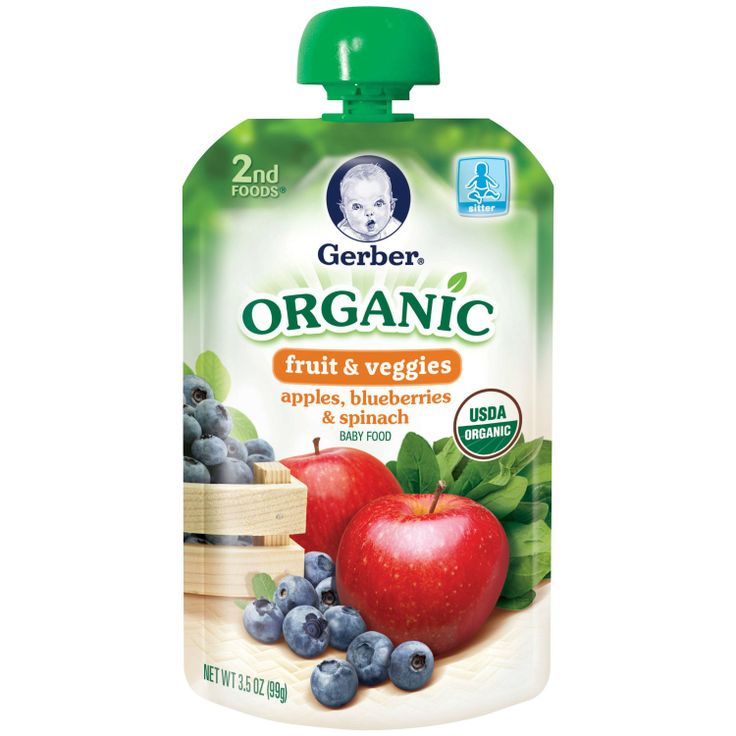 The National Child Nutrition Optimization Program recommends choosing complementary foods that contain elements designed to prevent anemia, rickets, and vitamin deficiencies.
The National Child Nutrition Optimization Program recommends choosing complementary foods that contain elements designed to prevent anemia, rickets, and vitamin deficiencies. - For a varied diet. The menu for a baby up to six months is quite monotonous. But as they grow older, the baby needs more various nutrients - proteins, carbohydrates, fats, vitamins, minerals.
- For the individual reaction of the baby. If the child is already receiving complementary foods, then it is worth introducing a new product only after the previous one has been fully introduced. If the baby is allergic to the product, then it should be administered carefully, carefully checking the reaction of the body.
Ingredient safety testing is optional. Of course, the content of any "chemistry" in the product for feeding a child, whether it be a mixture or complementary foods, is unacceptable. There is no need to worry about this: baby food is carefully checked. If it is registered on the territory of the Customs Union and hit the shelves, then it complies with SanPiN 2.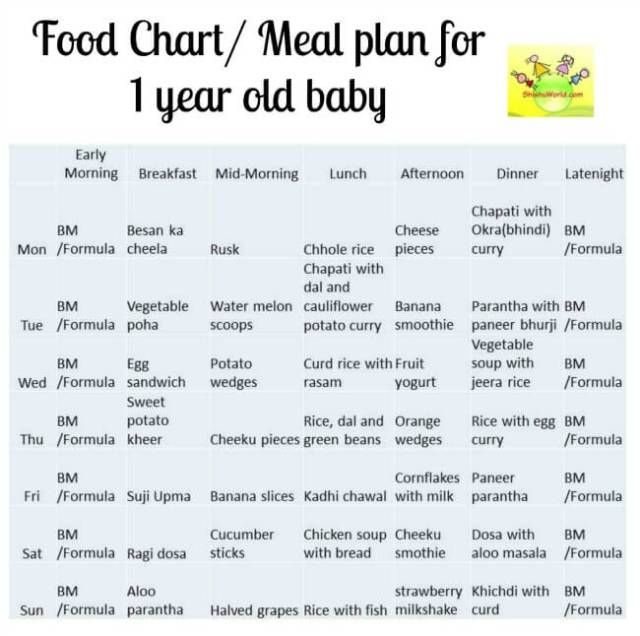 3.2.1940-05 and there will be no "prohibited" components in its composition. Also, contrary to popular misconception, in Russia it is forbidden to use GMOs in children's products.
3.2.1940-05 and there will be no "prohibited" components in its composition. Also, contrary to popular misconception, in Russia it is forbidden to use GMOs in children's products.
Note
Baby food in jars (usually mashed potatoes) has a short shelf life after opening because it does not contain preservatives. However, before the jar is opened, the products can stand for quite a long time on the shelves of stores or in the refrigerator at home. This is possible thanks to a special production technology, sterilization and vacuum packaging. If a soft pop is heard when opening the jar, this is a good sign: the puree is not spoiled. But products in jars with swollen lids or a protruding bottom should not be used: microorganisms already multiply in such food, it is not suitable for food.
Features of the choice of dairy products
It is necessary to choose dairy products for babies, following the doctor's recommendations.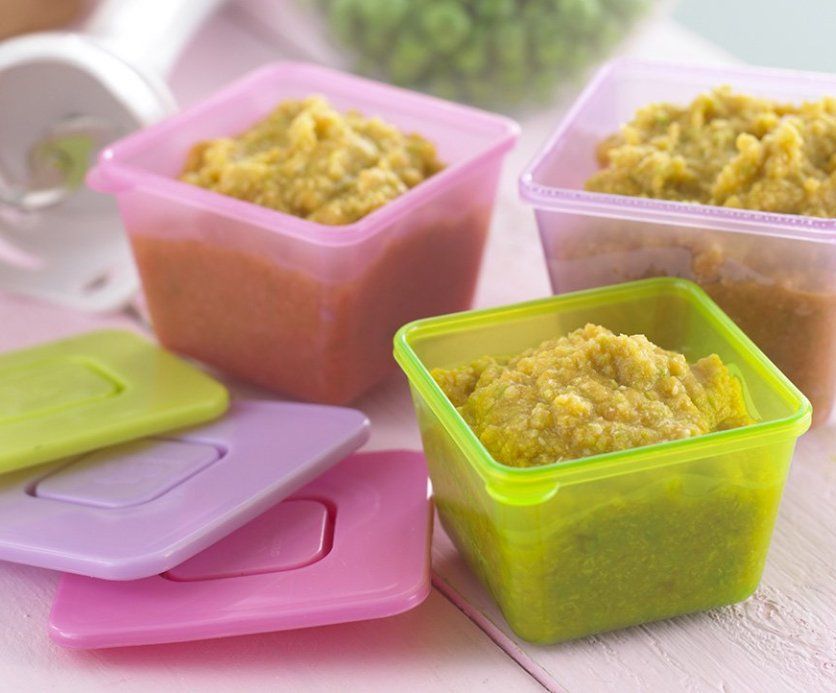 The specialist will take into account the health of the baby, especially if he is allergic to cow protein. In Russia, such an allergy occurs in 30–40% of children [6]. Such a reaction may occur due to hereditary predisposition and immaturity of the body. But most often, allergies go away when the child grows up.
The specialist will take into account the health of the baby, especially if he is allergic to cow protein. In Russia, such an allergy occurs in 30–40% of children [6]. Such a reaction may occur due to hereditary predisposition and immaturity of the body. But most often, allergies go away when the child grows up.
Goat milk baby food may be a suitable option for young children with a predisposition to allergies. Its protein is perceived by the body better than cow's: alpha-s1-casein, contained in large quantities in cow's milk, makes a product based on it difficult to digest - food stagnates in the baby's gastrointestinal tract, motor skills are disturbed, as a result, allergies often occur. In goat milk, as in breast milk, there is practically no alpha-s1-casein [7]. Therefore, goat's milk, and hence the mixture based on it, are better absorbed.
Of course, with the introduction of complementary foods, other dairy products will appear in the baby's diet. Unadapted fermented milk drinks, such as kefir, yogurt, biolact, can be introduced into the diet from eight months and in an amount not exceeding 200 ml.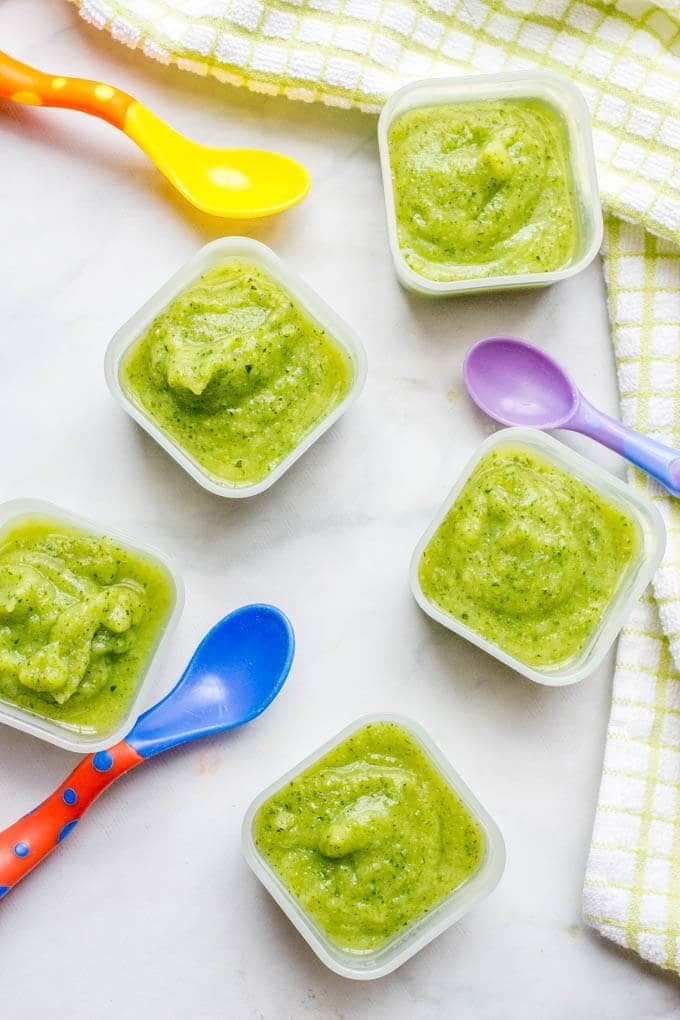 Also during this period, it is recommended to give cottage cheese - no more than 50 g per day, but according to indications, it can also be prescribed from the age of six months. Whole milk cannot be used as the main food, and it is advised to introduce it into the diet of babies no earlier than a year (in the amount of 100-150 ml per day) [8]. As mentioned above, it must be adapted infant milk or formula 3 formula.
Also during this period, it is recommended to give cottage cheese - no more than 50 g per day, but according to indications, it can also be prescribed from the age of six months. Whole milk cannot be used as the main food, and it is advised to introduce it into the diet of babies no earlier than a year (in the amount of 100-150 ml per day) [8]. As mentioned above, it must be adapted infant milk or formula 3 formula.
To choose the best baby food, it is necessary to take into account the health of the baby, his tastes, as well as individual reactions of the body. Therefore, before going to the store, you should consult a doctor. The specialist will not only tell you which baby food to choose, but also give recommendations on how to make the child's diet balanced and healthy.
The best baby food manufacturers as voted
What is the best baby food for a newborn? How to choose infant formula? This is not the whole list of questions that parents ask themselves when it comes time to transfer a child to artificial feeding or mixed nutrition.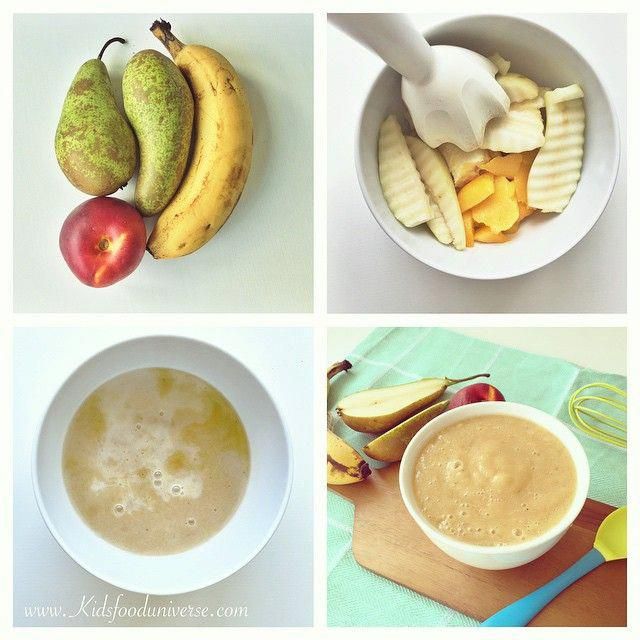 We will try to answer some of these questions as objectively as possible, based on our own experience and real reviews of mothers.
We will try to answer some of these questions as objectively as possible, based on our own experience and real reviews of mothers.
Ranking of the best baby food manufacturers
We will not look at specific types of products, such as milk formulas or purees, but will try to identify the best baby food manufacturers in general. The data was obtained from a survey among parents in one of the specialized groups of the social network.
Nutricia
Based on the experience of parents who choose baby food for newborns, the first place in the ranking is occupied by Nutricia (manufacturer - Holland). More than one thousand scientists monitor the quality control of this manufacturer; there are no artificial additives in the composition of the products. The product range includes five types of baby food for babies from birth to three years. These are adapted milk mixtures, cereals, vegetable and fruit purees, drinks.
Many votes were given to milk mixtures from the manufacturer Nutricia.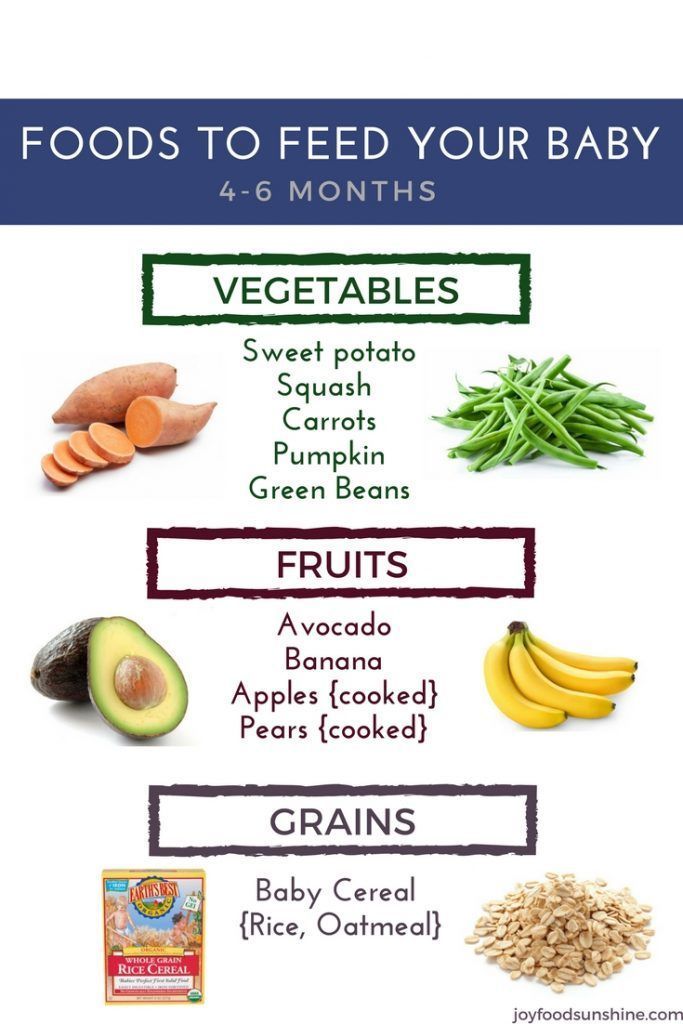 At the same time, parents write about improving digestion and normalizing stools in newborns. Vegetable purees from other manufacturers have an optimal consistency, and babies eat it with pleasure. Reviews of Nutricia children's tea with chamomile: « Excellent tea. Unsweetened, we drink with great pleasure ”, “ Baby drinks with pleasure ”. According to the price criterion, Nutricia products are very affordable for most buyers.
At the same time, parents write about improving digestion and normalizing stools in newborns. Vegetable purees from other manufacturers have an optimal consistency, and babies eat it with pleasure. Reviews of Nutricia children's tea with chamomile: « Excellent tea. Unsweetened, we drink with great pleasure ”, “ Baby drinks with pleasure ”. According to the price criterion, Nutricia products are very affordable for most buyers.
Nestle
In second place, according to the statistics of a survey of mothers, is baby food from Nestle (manufacturer - Switzerland) and their milk formulas NAN. Nutrition suitable for newborns, enriches the body with all the necessary vitamins and minerals.
Mom’s review of Nestle NAN Premium breast milk replacer: “ At first I used the mixture as complementary foods, but after infection and antibiotic treatment, the milk disappeared, and from the 20th day of life, my third baby eats only NAN, both older ones also grew by NAN, the first son - from the 3rd month, the middle daughter - from the 2nd.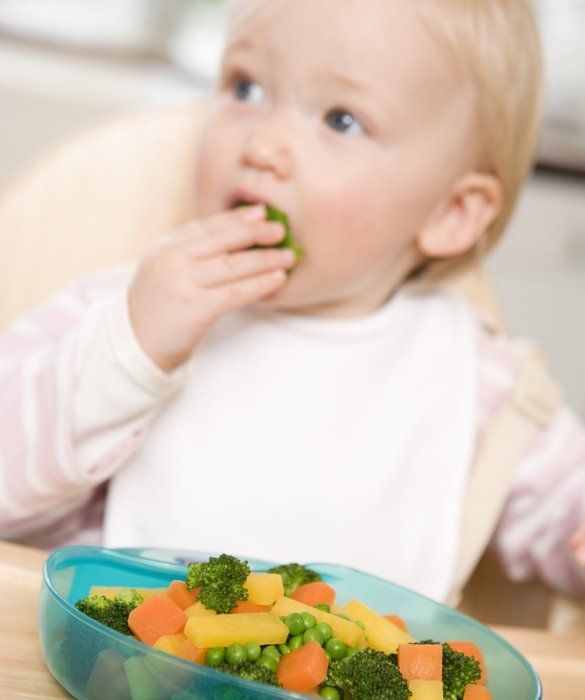 Everyone is healthy, no one had problems with stools, now we go by the hour with the baby - 2 times a day ". We should not forget that the body of each baby is special and it is possible to determine which brand of baby food is best for the baby only by trial and error. In order not to purchase a fake and avoid unpleasant consequences, you need to be extremely careful and buy baby food exclusively in trusted stores.
Everyone is healthy, no one had problems with stools, now we go by the hour with the baby - 2 times a day ". We should not forget that the body of each baby is special and it is possible to determine which brand of baby food is best for the baby only by trial and error. In order not to purchase a fake and avoid unpleasant consequences, you need to be extremely careful and buy baby food exclusively in trusted stores.
Hipp
In third place among the parents who determine the best manufacturers of baby food is the German company Hipp. The brand produces a whole line of adapted baby food products suitable for children of different ages: from birth, from 6 and 10 months. As for the vegetables and fruits from which the products are made, they are grown and harvested by the manufacturer. Hipp baby food can be found in supermarkets and pharmacies. Here is one of Hipp product reviews: « My baby likes it very much, and he is a very fastidious eater! ,” a parent wrote in the group.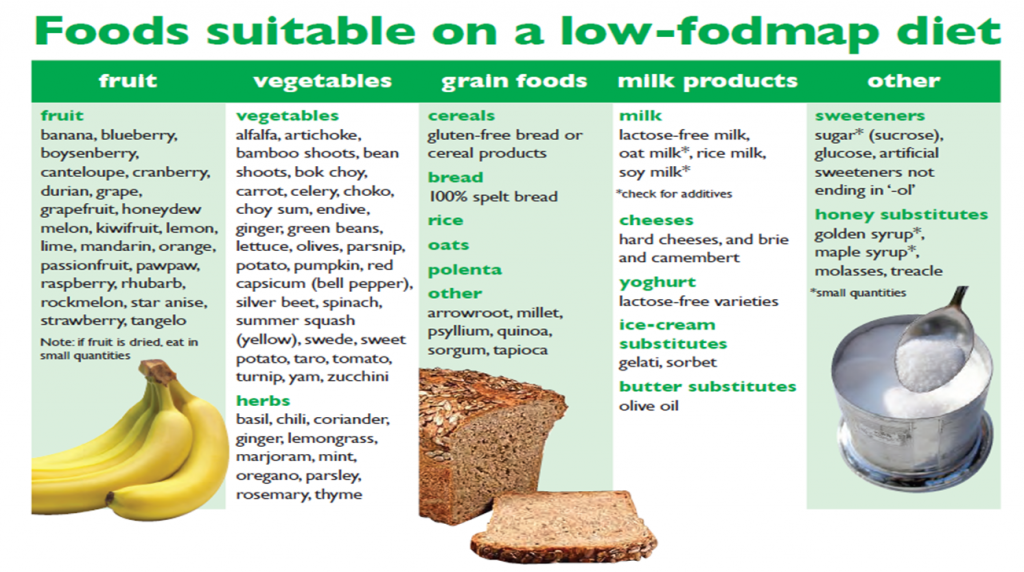
Friso
Many parents are familiar with Friso nutrition. This is a manufacturer of powdered milk formulas for babies from birth and gluten-free cereals for the first and subsequent complementary foods. Some parents add Friso baby formulas to dairy-free porridges from other manufacturers: “ The porridge is very tasty, the son eats with great pleasure ”, “ Good, tasty porridge. Smells good, blends well. My son is not allergic to her. We like ".
Many mothers are alarmed that the composition of these dry mixes does not comply with GOST. Do you always look at the compliance of products with the state standard?
Popular Russian manufacturers
The popularity of vegetable and fruit purees for children of such brands as Babushkino basket, Tyoma and Frutonyanya is due to quality and affordable price. The range of domestically produced products can be found in pharmacies and on the shelves of children's departments in supermarkets. In general, parents are satisfied with the products of these brands and often purchase them for babies.
Parent reviews or advertisements
Reviews or advertisements determine baby food choices? The baby receives useful trace elements daily with breast milk or an adapted mixture from birth. Artificial feeding or the introduction of complementary foods is the most important stage in the life of any parent. The growing body of a child simply needs vitamins and minerals for the harmonious development and strengthening of immunity. Everyone knows this very well. That is why it is necessary to find out which baby food company is the best.
In stores you can see a huge number of types of baby food from a variety of manufacturers. What to pay attention to in the first place and what to be guided by when choosing? Trademark advertising plays an important role. If every day we are convinced from the TV screen that the nutrition of one or another manufacturer is the best for the child, then when we come to the store, we are looking for this particular product with our eyes.